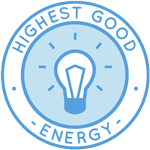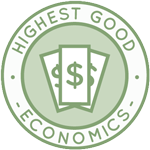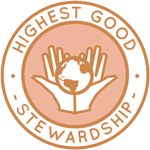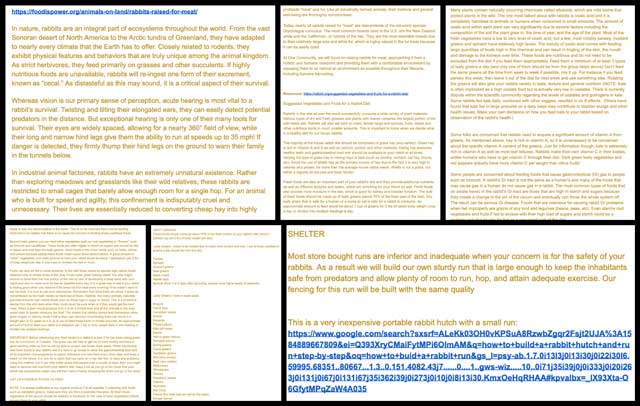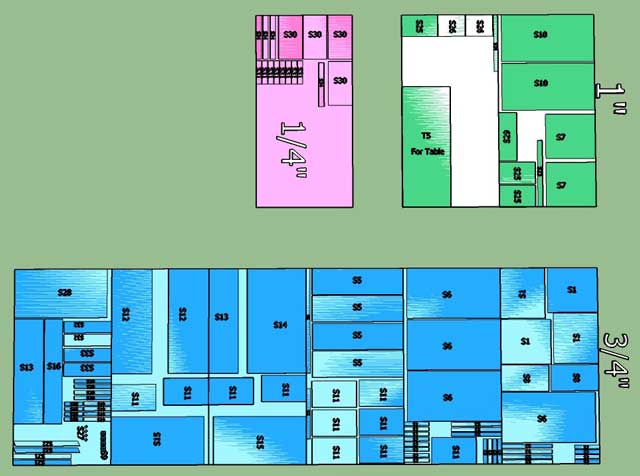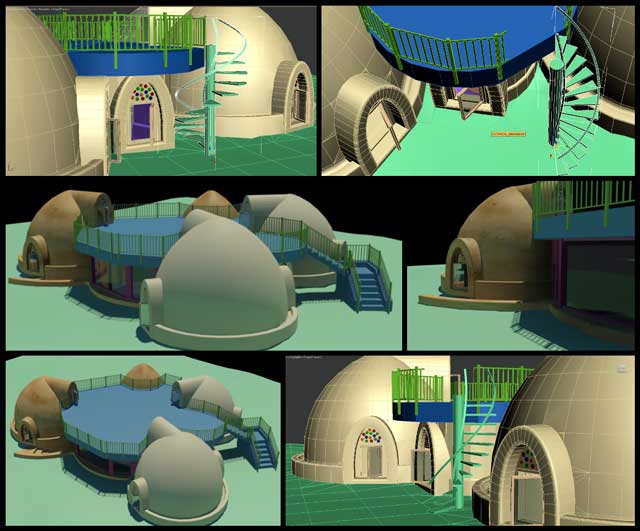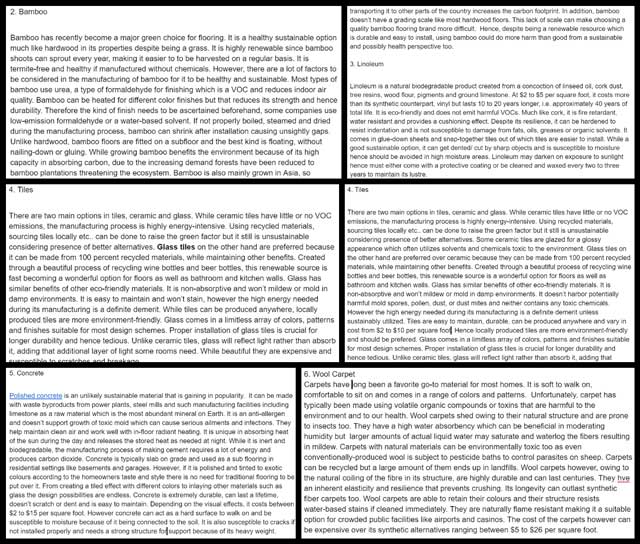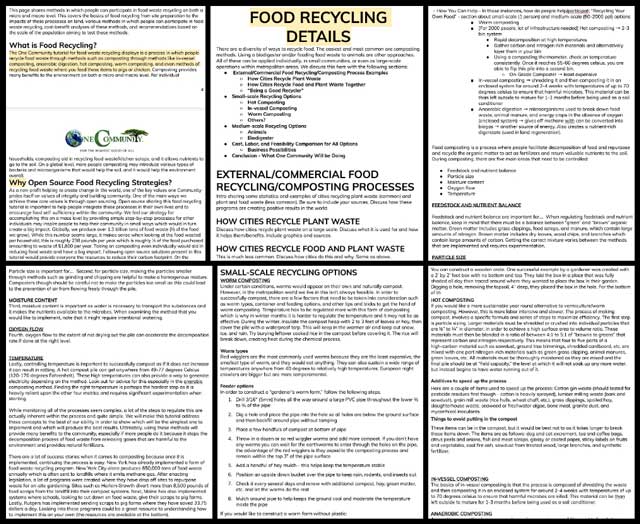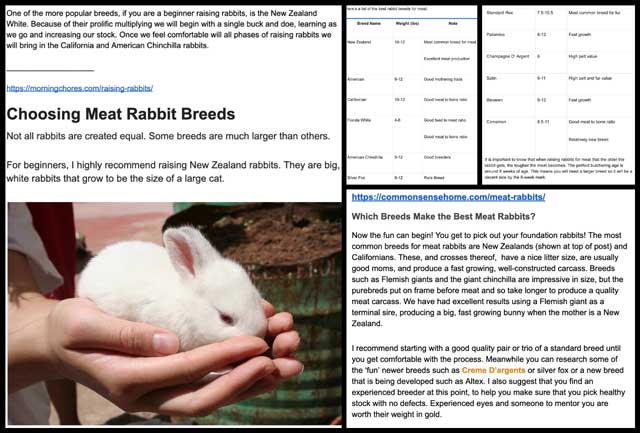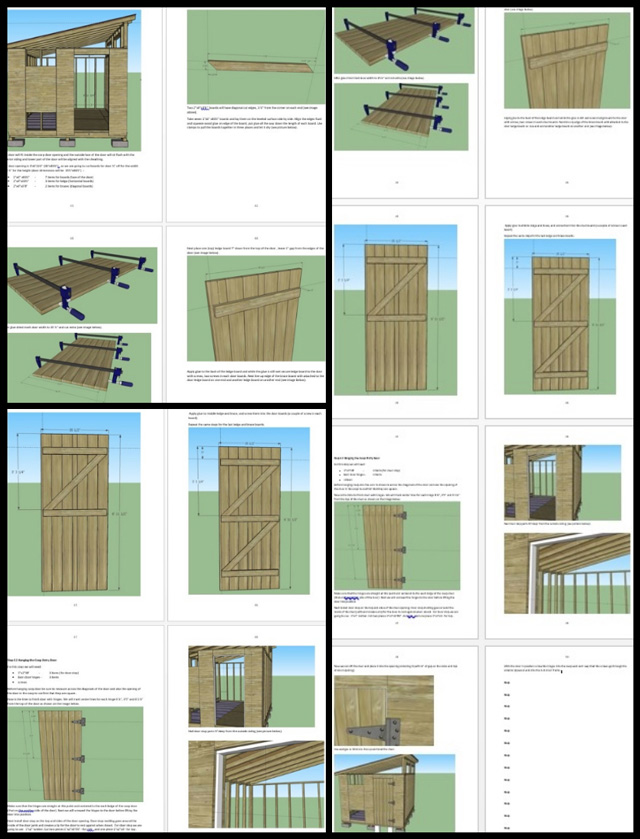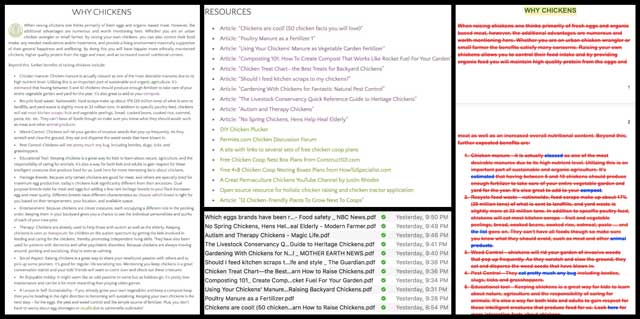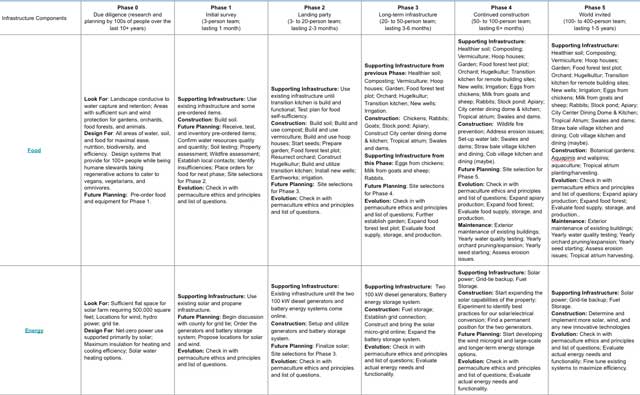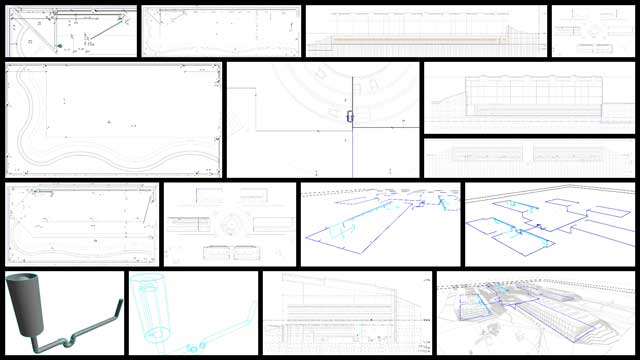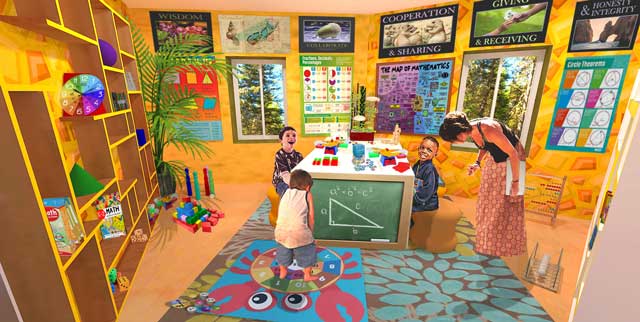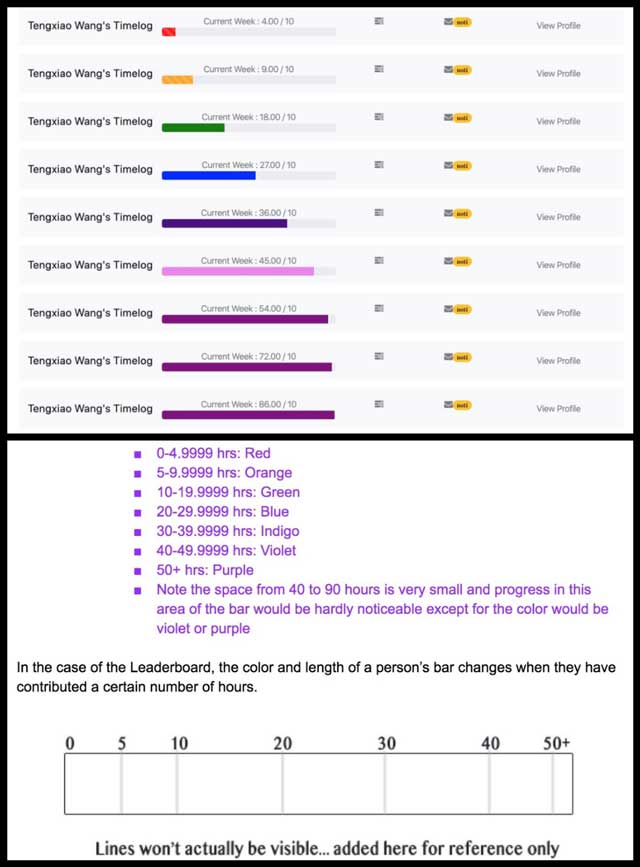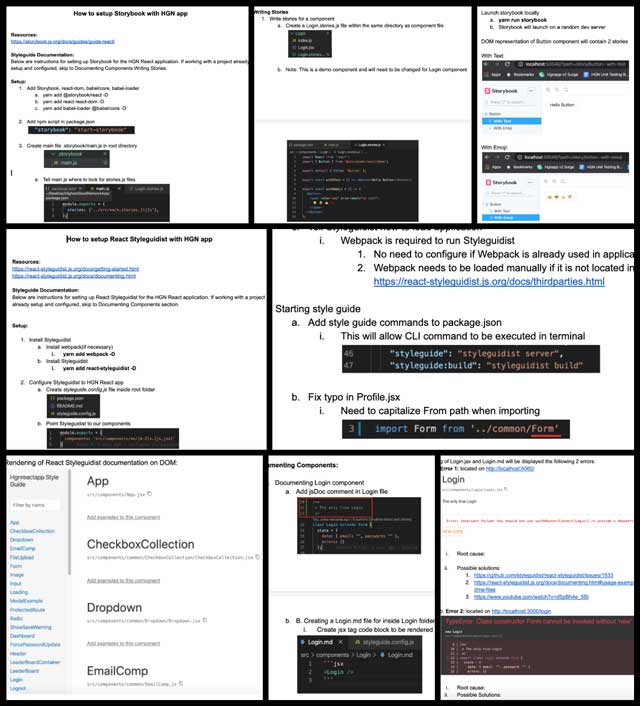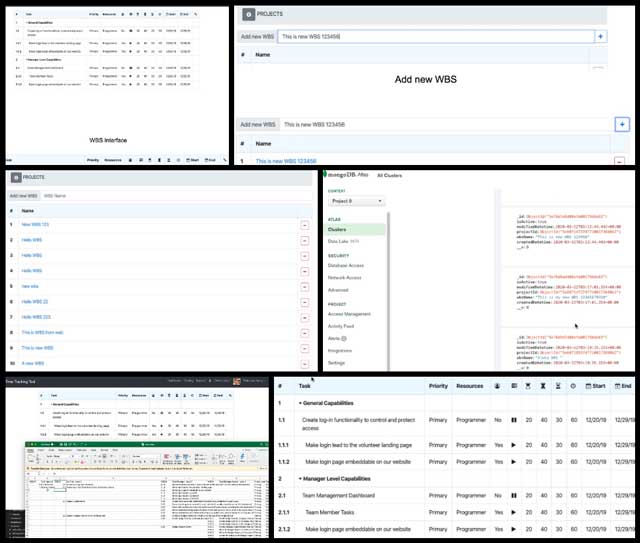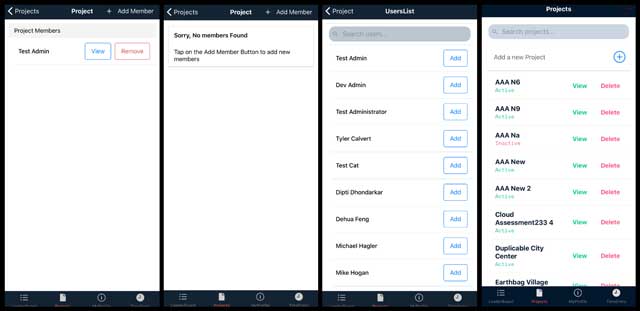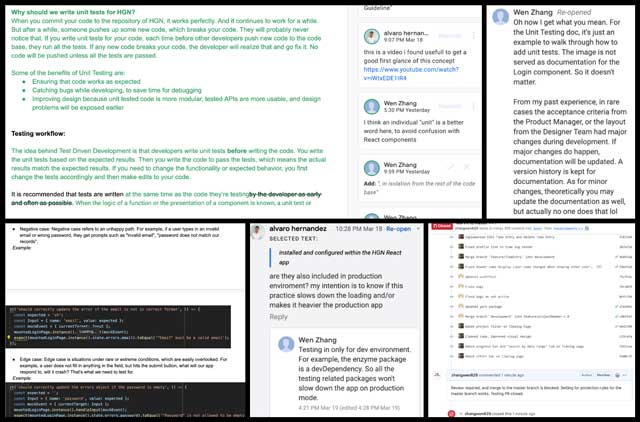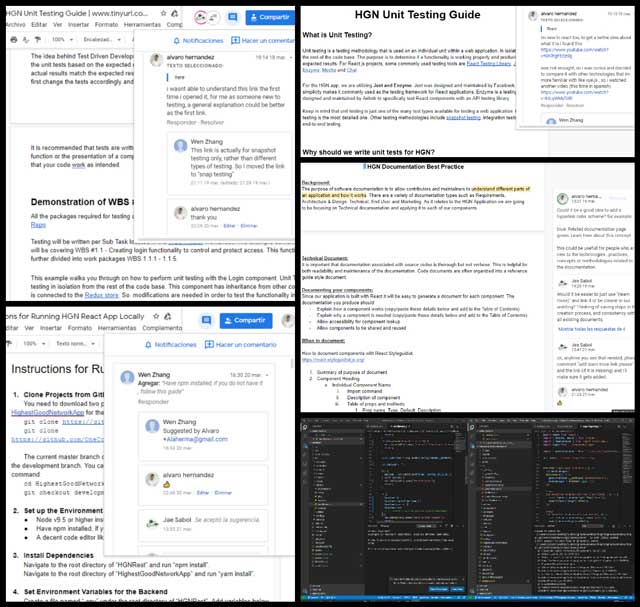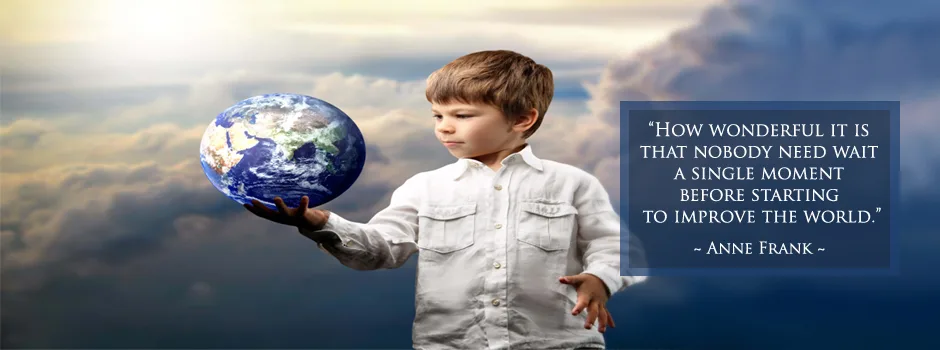
Eco-communities, COVID-19 and Other Potential Pandemics – One Community Weekly Progress Update #367
Posted on April 5, 2020 by One Community
Let’s talk about eco-communities, COVID-19 and other potential pandemics. In this week’s video we discuss how we expect people living in environments like One Community would be happier, healthier, and safer than most of the rest of the world right now. The discussion includes what pandemic preparation, mitigation, containment, and recovery would look like in a “Highest Good of All” living environment like One Community.
- Here’s our project overview
- Here’s our world-change methodology
- Here’s how this becomes self-replicating
- Here’s how we are open source and free-sharing all the do-it-yourself designs
WHAT ONE COMMUNITY IS CREATING : ECO-COMMUNITIES, COVID-19 AND OTHER POTENTIAL PROBLEMS
One Community is creating a place to grow together and change the world together, concurrently explaining why issues related to eco-communities, COVID-19 and other potential pandemics are important. We are creating a space that helps each other live in integrity with each other and the planet as we strive to be the greatest versions of ourselves. We do this by harmoniously respecting each other, nature, and the rest of our one shared planet.
Our goal is to demonstrate what we feel is the most sustainable, healthy, and fun environment we can create. A place based on compassion, kindness, and collaboration. This replicable community will serve as an example of why issues related to eco-communities, COVID-19 and other potential pandemics are important and showcase what is possible.
Throughout our design process we are open sourcing and free-sharing everything needed for construction and replication. This includes what we call “Highest Good” approaches to food, energy, housing, education, for-profit and non-profit economics design, social architecture, fulfilled living, stewardship practices and more. We are creating these resources for implementation as individual components or complete developments called teacher/demonstration hubs that answers why issues related to eco-communities, COVID-19 and other potential pandemics are important. These hubs will help launch additional hubs as awareness and knowledge grow.
BUILDING THE FIRST OF MANY
One Community will be the first teacher/demonstration hub. It will function as an experiential-learning model that facilitates mass participation to address humanity’s most pressing challenges through: A replicable model for expansion, building seven self-sufficient village/city prototypes, becoming the world leader in open-source sustainability solutions, and evolving and expanding ALL aspects of sustainable living.
WHY ONE COMMUNITY IS CREATING THIS
The One Community self-replicating model is capable of creating a sustainable planet within 30 years. We will achieve this by establishing successful teacher/demonstration hubs on every continent that explains why issues related to eco-communities, COVID-19 and other potential pandemics are important. Villages include designs appropriate for each of the five main types of climates. They also include options for even the most challenged economies. These hubs will collaborate with one another, share ideas, resources, and work together as a network to heal the planet. They will also transform the global lifestyle to a more enjoyable, fulfilling, healthy, and sustainable one.
The specifics of how One Community is accomplishing this can be found on the One Community Solution Model to Create Solution-creating Models Page. Research supporting and showing the benefits of a model like this can be found on our Research and Resources Articles Archive.
Even if we don’t achieve our ultimate goal of global transformation, a self-replicating teacher/demonstration model like this will contribute to the question of why issues related to eco-communities, COVID-19 and other potential pandemics are important, positively affecting millions while inspiring millions more. For One Community residents (the Pioneer Team), the idea of creating and sharing the social and recreational experience with visitors is also fun, exciting, fulfilling, and an additional reason why we are creating this.

OUR MAIN OPEN SOURCE HUBS
Click on each icon to be taken to the corresponding Highest Good hub page.
One Community’s physical location will forward this movement as the first of many self-replicating teacher/demonstration communities, villages, and cities to be built around the world. This is the April 5th, 2020 edition (#367) of our weekly progress update detailing our team’s development and accomplishments, explaining about Eco-communities, COVID-19 and other potential pandemics:
Eco-communities, COVID-19 and Other Potential Pandemics
One Community Progress Update #367
DONATE | COLLABORATE | HELP WITH LARGE-SCALE FUNDING
CLICK HERE IF YOU’D LIKE TO RECEIVE AN EMAIL EACH WEEK WHEN WE RELEASE A NEW UPDATE
YOU CAN ALSO JOIN US THROUGH SOCIAL MEDIA
ONE COMMUNITY WEEKLY UPDATE DETAILS
HIGHEST GOOD HOUSING PROGRESS – ECO-COMMUNITIES, COVID-19 AND OTHER POTENTIAL PANDEMICS
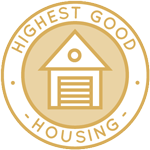 Thinking about Eco-communities, COVID-19 and Other Potential Pandemics, One Community is developing comprehensive community models with Highest Good housing that is artistic and beautiful, more affordable, more space efficient, lasts longer, DIY buildable, and constructed with healthy and sustainable materials:
Thinking about Eco-communities, COVID-19 and Other Potential Pandemics, One Community is developing comprehensive community models with Highest Good housing that is artistic and beautiful, more affordable, more space efficient, lasts longer, DIY buildable, and constructed with healthy and sustainable materials:
- Learn about: Our Upcoming Crowdfunding Campaign
- Learn about the different village models: 7 Sustainable Village Models
- Visit the open source portals for the first two: Earthbag Village OS Hub | Straw Bale Village OS Hub
This week the core team continued developing the open source permaculture design content with a focus on completing the Energy, Housing, and Education Infrastructure details of the Phased Rollout Table shown below.
Dean Scholz (Architectural Designer) continued helping with the Earthbag Village (Pod 1) 4-dome cluster designs. This week was week #184 of Dean’s work and the focus this week was texturing another dome, texturing the door for the main entry, and the door access to the hot tub area. You can see pictures of these updates below.
Ziqian Zheng (Architectural Designer and Drafter) also continued working on the Earthbag Village walkthrough and completed week 21 as a volunteer designer with our team. This week’s focus was closing all the village doors, changing the video timing, adding more interior details to the Tropical Atrium, and adding textures, people, and other details to the furnished interior views of the living structures. You can see some of the screenshots from the updated walkthrough here.
DUPLICABLE CITY CENTER PROGRESS – ECO-COMMUNITIES, COVID-19 AND OTHER POTENTIAL PANDEMICS
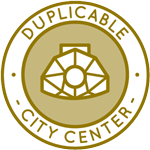 Thinking about Eco-communities, COVID-19 and Other Potential Pandemics, One Community is developing comprehensive community models with a Duplicable and Sustainable City Center that is LEED Platinum certified/Sustainable, can feed 200 people at a time, provide laundry for over 300 people, is beautiful, spacious, and saves resources, money, and space:
Thinking about Eco-communities, COVID-19 and Other Potential Pandemics, One Community is developing comprehensive community models with a Duplicable and Sustainable City Center that is LEED Platinum certified/Sustainable, can feed 200 people at a time, provide laundry for over 300 people, is beautiful, spacious, and saves resources, money, and space:
- Learn about this building and it’s function: Duplicable City Center Open Source Hub
This week the core team finished adding all the best water-saving faucet accessories we could find to the Most Sustainable Faucets and Faucet Accessories page. We also added Amazon links for all the products they sell, allowing easy access for reading reviews and purchasing. This completes this tutorial.
Radhieka Nagpal (Volunteer Researcher) also completed her 7th week researching the Most Sustainable Building Materials: Carpet, Flooring, Wood, Etc. This week Radhieka started benchmarking the types of flooring to better assign ranks to them. She researched into the manufacturing process and installation process to evaluate the carbon footprint for each and also added important updates to the descriptions as well. She did this for Cork, Linoleum, Bamboo, Tiles, Concrete, and Carpet, and slightly updated the introduction as well. You can see some of this work-in-progress below.
HIGHEST GOOD FOOD PROGRESS – ECO-COMMUNITIES, COVID-19 AND OTHER POTENTIAL PANDEMICS
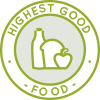 Thinking about Eco-communities, COVID-19 and Other Potential Pandemics, One Community is developing comprehensive community models with Highest Good food that is more diverse, more nutritious, locally grown and sustainable, and part of our open source botanical garden model to support and share bio-diversity:
Thinking about Eco-communities, COVID-19 and Other Potential Pandemics, One Community is developing comprehensive community models with Highest Good food that is more diverse, more nutritious, locally grown and sustainable, and part of our open source botanical garden model to support and share bio-diversity:
- Learn about the structures: Hoop House Hub | Aquapini & Walipini Open Source Hub
- See what we’ll be growing: Gardens & Hoop Houses | Large-scale Structures | Food Forest | TA
This week the core team began researching rabbits and compiling our findings on the behind-the-scenes research Google Doc. This week’s focus was researching rabbit food options, hutches and runs. We will construct our own hutches and runs. Most runs available for purchase are not very sturdy. We will build to the quality of our other fencing with regards to the rabbit exercise area.
The core team also continued working on the open source chicken coop step-by-step building instructions on our behind-the-scenes google doc. This week’s focus was more work on the door assembly instructions. Specifically, finishing pages 50-55: “Step 13. Installing a Door Handle and Door Latch” and finishing fixing the hinge problem we identified last week and included in 42 though 49 of the instructions. We’d say we’re now about 91% done with these plans.
This week Mohammad Almuzaial (Civil and Construction Engineer) continued with his 19th week helping with the Aquapini/Walipini civil engineering details and now working on the structural engineering details. This week he finished editing the architectural model, finished editing the site plan to align with the modified architectural drawings, edited the plumping model to match the modified architectural model, added access to the structures, added steel columns and isolated footing to the structures, researched roof structural systems, and steel columns prices. You can see some of this work work-in-progress below showing completion of the civil engineering details and we’d say we’re now about 65% complete with the structural details also.
Ali Ghahremannezhad (Mechanical Engineer) additionally continued with his 17th week as a member of the team and working on the climate batteries for the Aquapini/Walipini structures. This week Ali continued the transient 2D simulations of the aquapinis and walipinis in Utah considering the effect of climate batteries based on the previously evaluated transient boundary conditions for more months of the year. He also worked on developing a simple-to-use thermal model to capture the temperature variations of the inside air under different weather conditions and different used materials. You can see some of this work below.
HIGHEST GOOD EDUCATION PROGRESS – ECO-COMMUNITIES, COVID-19 AND OTHER POTENTIAL PANDEMICS
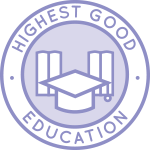 Thinking about Eco-communities, COVID-19 and Other Potential Pandemics, One Community is developing comprehensive community models with Highest Good education that is for all ages, applicable in any environment, adaptable to individual needs, far exceeds traditional education standards, and more fun for both the teachers and the students. This component of One Community is about 95% complete with only the Open Source School Licensing and Ultimate Classroom construction and assembly details remaining to be finished.
Thinking about Eco-communities, COVID-19 and Other Potential Pandemics, One Community is developing comprehensive community models with Highest Good education that is for all ages, applicable in any environment, adaptable to individual needs, far exceeds traditional education standards, and more fun for both the teachers and the students. This component of One Community is about 95% complete with only the Open Source School Licensing and Ultimate Classroom construction and assembly details remaining to be finished.
With over 8 years of work invested in the process, the sections below are all complete until we move onto the property and continue the development and open sourcing process with teachers and students – a development process that is built directly into the structure of the education program and everything else we’re creating too:
- Program Overview: Education Open Source Hub
- How the components work together: How to use the Education for Life Program
- Lesson Plans for Life – Lesson Plans How-to
- Foundations of Outstanding Leaders, Teachers, and Communicators
- Curriculum for Life
- Teaching Strategies for Life
- Learning Tools and Toys for Life
- Evaluation and Evolution
This week Dan Alleck (Designer and Illustrator) completed his 71st week helping with render additions and finishing work for the rooms in the Ultimate Classroom. This week he continued work on the yellow room. This room is about the subject of Math and various empowering character traits. What you see here is Dan’s 6th round additions focused on finding and adding more learning aids and books to the shelving, plus the plant on the right. This brings this room to about 90% complete.
HIGHEST GOOD SOCIETY PROGRESS – ECO-COMMUNITIES, COVID-19 AND OTHER POTENTIAL PANDEMICS
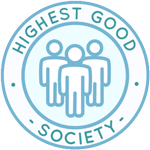 Thinking about Eco-communities, COVID-19 and Other Potential Pandemics, One Community is developing comprehensive community models with a Highest Good society approach to living that is founded on fulfilled living, the study of meeting human needs, Community, and making a difference in the world:
Thinking about Eco-communities, COVID-19 and Other Potential Pandemics, One Community is developing comprehensive community models with a Highest Good society approach to living that is founded on fulfilled living, the study of meeting human needs, Community, and making a difference in the world:
- Read the Highest Good society overview: Highest Good Society
- Learn about the model for fulfilled living and sharing: A Day in the Life
- Learn about the 4 economic models: RBE | For-profit | Non-profit | Entrepreneurship
- Learn about our open source community collaboration and management software: The Highest Good Network
This week Henry Ng (React Developer) completed his 9th week with the team and working on the Highest Good Network software. This week Henry returned to building the API for adding tasks to the Work Breakdown Structure by using the WBS ID. This is so the tasks will load to the interface and be sorted by IDs. The data is displayed as icons, and buttons are used to send quick information to the users. New mouseover text shows what each button represents also. You can see some of this work below.

Returned to Building the API for Adding Tasks to the Work Breakdown Structure by Using the WBS ID – Click for Highest Good Network
Siddharth Gore (Senior Software Engineer I) also completed his 9th week as a member of the volunteer team also working on the Highest Good Network software. This week Siddharth worked on the Modal component of react native mobile app. Now one Modal can be reused across the app changing message texts and button values for tasks which require user confirmation. He also looked into Google Sheets API for using data (alerts) that can be read from a spreadsheet and displayed on the website and time tracking tool portal and mobile application. You can see some of this work below.
Wen Zhang (Software Engineer) completed her 3rd week as a volunteer working on the Highest Good Network software. This week Wen helped finalize the HGN Functionality Documentation. She also completed the 2nd-to-final drafts of the HGN React Design Doc, Workflow and Github Doc, and Codebase Rules & Conventions Doc.
And Alvaro Hernandez (Open Source Tech Consultant, Developer) completed his 2nd week as a member of the Highest Good Network software team. This week Alvaro made his first pull request to fix a small error, started to work on a unit test for the leaderboard, started a new doc to document code and command formatting, and another one to explore a style template for documentation. He also helped with feedback on all the other Documentation docs. You can see some of this work below.
SUMMARY – ECO-COMMUNITIES, COVID-19 AND OTHER POTENTIAL PROBLEMS
One Community sees the issues of the world as interdependent and interconnected. To address them simultaneously, and support the process of biohacking our future, we are open-source blueprinting a more advanced standard of living by designing holistic, environmentally-regenerative, self-sustaining, adaptable solutions for all areas of sustainability. We will model these within a comprehensive “village/city” which will be built in the southwestern U.S. This teacher/demonstration hub will be a place people can experience a new way of living and then replicate it with our open source blueprints: creating a model solution that creates additional solution-creating models.
AND WE PRODUCED THIS WEEKLY UPDATES BLOG – CLICK HERE TO SUBSCRIBE
FOLLOW ONE COMMUNITY’S PROGRESS (click icons for our pages)
INVESTOR PAGES
GET INVOLVED
Blueprint for Global Cooperatives – One Community Weekly Progress Update #366
Posted on March 29, 2020 by One Community
One Community is creating an open source blueprint for global cooperatives. This includes the tools, tutorials, data, and costs needed for global replication. These sustainable and self-sufficient eco-communities will function as teacher/demonstration hubs to help others replicate them even easier.
- Here’s our project overview
- Here’s our world-change methodology
- Here’s how this becomes self-replicating
- Here’s how we are open source and free-sharing all the do-it-yourself designs
WHAT ONE COMMUNITY IS CREATING
One Community is creating a place to grow together and change the world together, concurrently explaining why blueprint for global cooperatives are important. We are creating a space that helps each other live in integrity with each other and the planet as we strive to be the greatest versions of ourselves. We do this by harmoniously respecting each other, nature, and the rest of our one shared planet.
Our goal is to demonstrate what we feel is the most sustainable, healthy, and fun environment we can create. A place based on compassion, kindness, and collaboration. This replicable community will serve as an example of why blueprint for global cooperatives are important and showcase what is possible.
Throughout our design process we are open sourcing and free-sharing everything needed for construction and replication. This includes what we call “Highest Good” approaches to food, energy, housing, education, for-profit and non-profit economics design, social architecture, fulfilled living, stewardship practices and more. We are creating these resources for implementation as individual components or complete developments called teacher/demonstration hubs that answers why open blueprint for global cooperatives are important. These hubs will help launch additional hubs as awareness and knowledge grow.
BUILDING THE FIRST OF MANY
One Community will be the first teacher/demonstration hub. It will function as an experiential-learning model that facilitates mass participation to address humanity’s most pressing challenges through: A replicable model for expansion, building seven self-sufficient village/city prototypes, becoming the world leader in open-source sustainability solutions, and evolving and expanding ALL aspects of sustainable living.
WHY ONE COMMUNITY IS CREATING THIS
The One Community self-replicating model is capable of creating a sustainable planet within 30 years. We will achieve this by establishing successful teacher/demonstration hubs on every continent that explains why blueprint for global cooperatives are important. Villages include designs appropriate for each of the five main types of climates. They also include options for even the most challenged economies. These hubs will collaborate with one another, share ideas, resources, and work together as a network to heal the planet. They will also transform the global lifestyle to a more enjoyable, fulfilling, healthy, and sustainable one.
The specifics of how One Community is accomplishing this can be found on the One Community Solution Model to Create Solution-creating Models Page. Research supporting and showing the benefits of a model like this can be found on our Research and Resources Articles Archive.
Even if we don’t achieve our ultimate goal of global transformation, a self-replicating teacher/demonstration model like this will contribute to the question of why blueprint for global cooperatives are important, positively affecting millions while inspiring millions more. For One Community residents (the Pioneer Team), the idea of creating and sharing the social and recreational experience with visitors is also fun, exciting, fulfilling, and an additional reason why we are creating this.
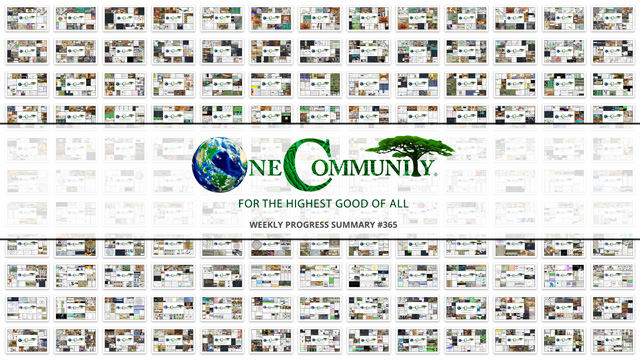
OUR MAIN OPEN SOURCE HUBS
Click on each icon to be taken to the corresponding Highest Good hub page.
One Community’s physical location will forward this movement as the first of many self-replicating teacher/demonstration communities, villages, and cities to be built around the world. This is the March 29th, 2020 edition (#366) of our weekly progress update detailing our team’s development and accomplishments, explaining why blueprint for global cooperatives are important:
Blueprint for Global Cooperatives
One Community Progress Update #366
DONATE | COLLABORATE | HELP WITH LARGE-SCALE FUNDING
CLICK HERE IF YOU’D LIKE TO RECEIVE AN EMAIL EACH WEEK WHEN WE RELEASE A NEW UPDATE
YOU CAN ALSO JOIN US THROUGH SOCIAL MEDIA
ONE COMMUNITY WEEKLY UPDATE DETAILS
HIGHEST GOOD HOUSING PROGRESS – BLUEPRINT FOR GLOBAL COOPERATIVES
 One Community is creating a blueprint for global cooperatives through Highest Good housing that is artistic and beautiful, more affordable, more space efficient, lasts longer, DIY buildable, and constructed with healthy and sustainable materials:
One Community is creating a blueprint for global cooperatives through Highest Good housing that is artistic and beautiful, more affordable, more space efficient, lasts longer, DIY buildable, and constructed with healthy and sustainable materials:
- Learn about: Our Upcoming Crowdfunding Campaign
- Learn about the different village models: 7 Sustainable Village Models
- Visit the open source portals for the first two: Earthbag Village OS Hub | Straw Bale Village OS Hub
This week the core team continued with what we hope will be the 2nd-to-final review of the Murphy bed instructions. This week we finished the review by completing the rest of cut sheets plan. Parts added to the plan this week included the rest needed for the Benches & Table, Nightstands, and Storage. You can see pictures of the finished cut sheets below and we’re now onto final integration of all the needed edits to the actual assembly instructions.
Dean Scholz (Architectural Designer) continued helping with the Earthbag Village (Pod 1) 4-dome cluster designs. This week was week #183 of Dean’s work and the focus this week was continuing to texture the domes, texturing the main stairway entry, and testing out different stairway options for access to the rooftop patio. You can see pictures of these updates below.
And Ziqian Zheng (Architectural Designer and Drafter) also continued working on the Earthbag Village and completed week 2o as a volunteer designer with our team. This week’s focus was adding furniture to the top of the Tropical Atrium, furniture to the living structures, and fixing broken or incomplete building elements. You can see some of the screenshots from the updated walkthrough here.
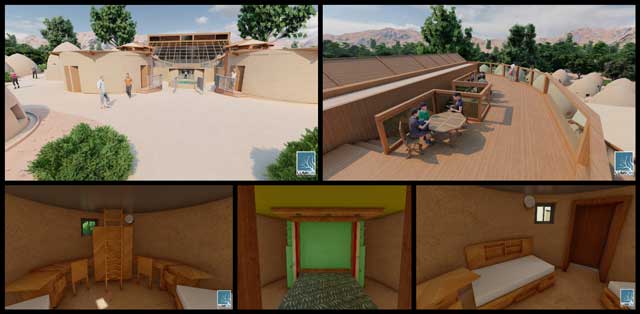
Blueprint for Global Cooperatives – Tropical Atrium and Living Structures – Click for Tropical Atrium
DUPLICABLE CITY CENTER PROGRESS – BLUEPRINT FOR GLOBAL COOPERATIVES
 One Community is creating a blueprint for global cooperatives through a Duplicable and Sustainable City Center that is LEED Platinum certified/Sustainable, can feed 200 people at a time, provide laundry for over 300 people, is beautiful, spacious, and saves resources, money, and space:
One Community is creating a blueprint for global cooperatives through a Duplicable and Sustainable City Center that is LEED Platinum certified/Sustainable, can feed 200 people at a time, provide laundry for over 300 people, is beautiful, spacious, and saves resources, money, and space:
- Learn about this building and it’s function: Duplicable City Center Open Source Hub
This week Radhieka Nagpal (Volunteer Researcher) completed her 6th week researching the Most Sustainable Building Materials: Carpet, Flooring, Wood, Etc. This week, Radhieka researched further into other types of sustainable flooring and integrated what she found to benchmarked them based on Health & Safety, Sustainability, Cost, Practicality/do-it-yourself application, and Durability. She considered the full lifecycle of these products to have a well-rounded perspective on each flooring type. This was done for bamboo, linoleum, tiles, concrete and carpet. You can see some of this work-in-progress below.
Isha Chadalavada (Volunteer Researcher) also completed her 1st week developing the content for the Food Waste Recycling section of the Best Small and Large-scale Recycling, Reuse, and Repurposing Options page. This week she completed the open source section, overview of food waste section, and preliminary research of various types of small-scale recycling options like worm composting, hot composting, and in-vessel composting. You can see some of this behind-the-scenes work in progress below.
HIGHEST GOOD FOOD PROGRESS – BLUEPRINT FOR GLOBAL COOPERATIVES
 One Community is creating a blueprint for global cooperatives through Highest Good food that is more diverse, more nutritious, locally grown and sustainable, and part of our open source botanical garden model to support and share bio-diversity:
One Community is creating a blueprint for global cooperatives through Highest Good food that is more diverse, more nutritious, locally grown and sustainable, and part of our open source botanical garden model to support and share bio-diversity:
- Learn about the structures: Hoop House Hub | Aquapini & Walipini Open Source Hub
- See what we’ll be growing: Gardens & Hoop Houses | Large-scale Structures | Food Forest | TA
This week the core team began researching rabbits and compiling our findings on the behind-the-scenes research Google Doc. This week’s focus was researching the best breeds for meat rabbits.
The core team also returned to working on the open source chicken coop step-by-step building instructions on our behind-the-scenes google doc. This week’s focus was working on the door assembly instructions and fixing a hinge problem we identified and fixed across pages 42 though 49 of the instructions. We’d say we’re now about 90% done with these.
And the core team began transferring our research on chickens from the Google Doc the open source webpage. This week we created the “Why Chickens” section, added all the related resources to the Resources section, and backed them all up to our DropBox archive. You can see some of this work here.
In addition to this, the core team continued developing the open source permaculture design content. This week’s focus was solidifying the Food Infrastructure rollout details using the new Phased Rollout Table and aligning it with our text in the Permaculture Design Case Study section. We also worked on doing this for the Energy Infrastructure section. You can see some of this behind-the-scenes work below.
This week Mohammad Almuzaial (Civil and Construction Engineer) continued with his 18th week helping with the Aquapini/Walipini civil engineering details. This week he modified the water supply main pipe to be below the frost line at a minimum of 32″ underground, modified the architectural model to match the SketchUp model instead of the 2D plans provided, finished the water supply network for all the structures and fixed interference with the drainage network, created annotated plumbing 2D construction drawings for all structures, and added bell siphon to the water beds.
You can see some of this work work-in-progress below and we’d say this brings this part of this component to 95% complete.
HIGHEST GOOD EDUCATION PROGRESS – BLUEPRINT FOR GLOBAL COOPERATIVES
 One Community is creating a blueprint for global cooperatives through Highest Good education that is for all ages, applicable in any environment, adaptable to individual needs, far exceeds traditional education standards, and more fun for both the teachers and the students. This component of One Community is about 95% complete with only the Open Source School Licensing and Ultimate Classroom construction and assembly details remaining to be finished.
One Community is creating a blueprint for global cooperatives through Highest Good education that is for all ages, applicable in any environment, adaptable to individual needs, far exceeds traditional education standards, and more fun for both the teachers and the students. This component of One Community is about 95% complete with only the Open Source School Licensing and Ultimate Classroom construction and assembly details remaining to be finished.
With over 8 years of work invested in the process, the sections below are all complete until we move onto the property and continue the development and open sourcing process with teachers and students – a development process that is built directly into the structure of the education program and everything else we’re creating too:
- Program Overview: Education Open Source Hub
- How the components work together: How to use the Education for Life Program
- Lesson Plans for Life – Lesson Plans How-to
- Foundations of Outstanding Leaders, Teachers, and Communicators
- Curriculum for Life
- Teaching Strategies for Life
- Learning Tools and Toys for Life
- Evaluation and Evolution
This week Dan Alleck (Designer and Illustrator) completed his 70th week helping with render additions and finishing work for the rooms in the Ultimate Classroom. This week he continued work on the yellow room. This room is about the subject of Math and the character traits of peaceful leadership, sharing, self esteem, respect for others, self-control, self-discipline, calmness, and initiative. What you see here is Dan’s 5th round additions focused on finding and adding toys and books to the shelving and floor. This brings this room to about 85% complete.
HIGHEST GOOD SOCIETY PROGRESS – BLUEPRINT FOR GLOBAL COOPERATIVES
 One Community is creating a blueprint for global cooperatives through a Highest Good society approach to living that is founded on fulfilled living, the study of meeting human needs, Community, and making a difference in the world:
One Community is creating a blueprint for global cooperatives through a Highest Good society approach to living that is founded on fulfilled living, the study of meeting human needs, Community, and making a difference in the world:
- Read the Highest Good society overview: Highest Good Society
- Learn about the model for fulfilled living and sharing: A Day in the Life
- Learn about the 4 economic models: RBE | For-profit | Non-profit | Entrepreneurship
- Learn about our open source community collaboration and management software: The Highest Good Network
This week Tengxiao Wang (Software Engineer) completed his 11th week working on the Highest Good Network software. This week Tengxiao implemented a new version of the progress bar on the Time Log page. Now the color changes to match the Leaderboard and the length is determined by the absolute value instead of percentage. Stripes are added to the bar when a volunteer hasn’t completed his or her weekly committed hours.
Simon Xiong (Programmer) completed his 8th and final week working on the Highest Good Network software. This week he worked on finishing as much as he could of the HGN Unit Test and HGN Documentation with the other members of the team. This included clarifying concepts on documents, making and integrating suggestions for improvement, and outlining the remaining tasks for completion. Screenshots of some of this work are below.
Henry Ng (React Developer) also completed his 8th week with the team and working on the Highest Good Network software. This week Henry used the backend to work with the Work Breakdown Structure (WBS). He created a function to add the WBS to a project. He also created a new interface for the WBS based on the WBS converted to excel files. This was a challenge in UX Design (User Experience) because he had to design something new but based on the current interface with the Excel files. To accomplish this he did research on WBS design using MS Project Software. You can see some of this work below.
Siddharth Gore (Senior Software Engineer I) completed his 8th week as a member of the volunteer team also working on the Highest Good Network software. This week Siddharth worked on the Add Project Member and Remove Project Member functionality for the mobile app. He also refactored some code to make it better. You can see some of the results of this work below.
Wen Zhang (Software Engineer) completed her 2nd week as a volunteer working on the Highest Good Network software. This week Wen continued adding content to the Unit Testing Doc, and followed up with comments & suggestions. Wen answered questions raised by other team members, helped with the error messages, finalized the Unit Testing Doc, and created an improved strategy to address vulnerabilities of the Github repo by adding protection rules for the master branch and development branch. In addition to this, Wen continued working on the draft of HGN App Design Doc and Workflow & Github Doc, based on the outlines she completed last week.
And Alvaro Hernandez (Open Source Tech Consultant, Developer) joined the Highest Good Network software team and completed his first week as a volunteer. This week his main tasks were helping with the new documentation guidelines we are creating. He gave reviewed, tested, and gave feedback to Unit Testing documentation, HGN Documentation, and Instructions for Running the HGN React App Locally by providing clarifying links and a newcomer perspective. He also set up his local development environment for further Unit Testing development. You can see some of this work below.
SUMMARY – BLUEPRINT FOR GLOBAL COOPERATIVES
One Community sees the issues of the world as interdependent and interconnected. To address them simultaneously, and support the process of biohacking our future, we are open-source blueprinting a more advanced standard of living by designing holistic, environmentally-regenerative, self-sustaining, adaptable solutions for all areas of sustainability. We will model these within a comprehensive “village/city” which will be built in the southwestern U.S. This teacher/demonstration hub will be a place people can experience a new way of living and then replicate it with our open source blueprints: creating a model solution that creates additional solution-creating models.
AND WE PRODUCED THIS WEEKLY UPDATES BLOG – CLICK HERE TO SUBSCRIBE
FOLLOW ONE COMMUNITY’S PROGRESS (click icons for our pages)
INVESTOR PAGES
GET INVOLVED
Why Open Source Eco-villages – One Community Weekly Progress Update #365
Posted on March 22, 2020 by One Community
Why open source eco-villages? Well, for starters, because we could create a sustainable world through a global cooperative of villages and communities working together as teacher/demonstration hubs. Creating sustainability think tanks collaborating for the Highest Good of all people and life on this planet. Never has this been needed more and One Community is doing our part by developing the open source and free-shared resources and tutorials for food, energy, housing, education, for-profit and non-profit economic design, social architecture, fulfilled living, and global stewardship components necessary to launch these.
- Here’s our project overview
- Here’s our world-change methodology
- Here’s how this becomes self-replicating
- Here’s how we are open source and free-sharing all the do-it-yourself designs
WHAT ONE COMMUNITY IS CREATING
One Community is creating a place to grow together and change the world together, concurrently explaining why open source eco-villages are important. We are creating a space that helps each other live in integrity with each other and the planet as we strive to be the greatest versions of ourselves. We do this by harmoniously respecting each other, nature, and the rest of our one shared planet.
Our goal is to demonstrate what we feel is the most sustainable, healthy, and fun environment we can create. A place based on compassion, kindness, and collaboration. This replicable community will serve as an example of why open source eco-villages are important and showcase what is possible.
Throughout our design process we are open sourcing and free-sharing everything needed for construction and replication. This includes what we call “Highest Good” approaches to food, energy, housing, education, for-profit and non-profit economics design, social architecture, fulfilled living, stewardship practices and more. We are creating these resources for implementation as individual components or complete developments called teacher/demonstration hubs that answers why open source eco-villages are important. These hubs will help launch additional hubs as awareness and knowledge grow.
BUILDING THE FIRST OF MANY
One Community will be the first teacher/demonstration hub. It will function as an experiential-learning model that facilitates mass participation to address humanity’s most pressing challenges through: A replicable model for expansion, building seven self-sufficient village/city prototypes, becoming the world leader in open-source sustainability solutions, and evolving and expanding ALL aspects of sustainable living.
WHY ONE COMMUNITY IS CREATING THIS
The One Community self-replicating model is capable of creating a sustainable planet within 30 years. We will achieve this by establishing successful teacher/demonstration hubs on every continent that explains why open source eco-villages are important. Villages include designs appropriate for each of the five main types of climates. They also include options for even the most challenged economies. These hubs will collaborate with one another, share ideas, resources, and work together as a network to heal the planet. They will also transform the global lifestyle to a more enjoyable, fulfilling, healthy, and sustainable one.
The specifics of how One Community is accomplishing this can be found on the One Community Solution Model to Create Solution-creating Models Page. Research supporting and showing the benefits of a model like this can be found on our Research and Resources Articles Archive.
Even if we don’t achieve our ultimate goal of global transformation, a self-replicating teacher/demonstration model like this will contribute to the question of why open source eco-villages are important, positively affecting millions while inspiring millions more. For One Community residents (the Pioneer Team), the idea of creating and sharing the social and recreational experience with visitors is also fun, exciting, fulfilling, and an additional reason why we are creating this.

OUR MAIN OPEN SOURCE HUBS
Click on each icon to be taken to the corresponding Highest Good hub page.
One Community’s physical location will forward this movement as the first of many self-replicating teacher/demonstration communities, villages, and cities to be built around the world. This is the March 22nd, 2020 edition (#365) of our weekly progress update detailing our team’s development and accomplishments, explaining why open source eco-villages are important:
Why Open Source Eco-Villages
One Community Progress Update #365
DONATE | COLLABORATE | HELP WITH LARGE-SCALE FUNDING
CLICK HERE IF YOU’D LIKE TO RECEIVE AN EMAIL EACH WEEK WHEN WE RELEASE A NEW UPDATE
YOU CAN ALSO JOIN US THROUGH SOCIAL MEDIA
ONE COMMUNITY WEEKLY UPDATE DETAILS
HIGHEST GOOD HOUSING PROGRESS – WHY OPEN SOURCE ECO-VILLAGES
 One Community is answering the question, “why open source eco-villages” through Highest Good housing that is artistic and beautiful, more affordable, more space efficient, lasts longer, DIY buildable, and constructed with healthy and sustainable materials:
One Community is answering the question, “why open source eco-villages” through Highest Good housing that is artistic and beautiful, more affordable, more space efficient, lasts longer, DIY buildable, and constructed with healthy and sustainable materials:
- Learn about: Our Upcoming Crowdfunding Campaign
- Learn about the different village models: 7 Sustainable Village Models
- Visit the open source portals for the first two: Earthbag Village OS Hub | Straw Bale Village OS Hub
This week the core team continued with what we hope will be the 2nd-to-final review of the Murphy bed instructions. This week we finished the review of the bench and table assembly and started work on the final cut sheets plan where we finished the wall-parts section. You can see some of this work in progress below.
Ziqian Zheng (Architectural Designer and Drafter) also continued working on the Earthbag Village and completed week 19 as a volunteer designer with our team. This week’s focus was adding plants and trees to the Tropical Atrium walkthrough. You can see some of the screenshots from the updated walkthrough here.
And Dean Scholz (Architectural Designer) continued helping with the Earthbag Village (Pod 1) 4-dome cluster designs. This week was week #182 of Dean’s work and the focus this week was continuing to test textures and fix errors found during this process. You can see pictures of these updates below.
DUPLICABLE CITY CENTER PROGRESS – WHY OPEN SOURCE ECO-VILLAGES
 One Community is answering the question, “why open source eco-villages” through a Duplicable and Sustainable City Center that is LEED Platinum certified/Sustainable, can feed 200 people at a time, provide laundry for over 300 people, is beautiful, spacious, and saves resources, money, and space:
One Community is answering the question, “why open source eco-villages” through a Duplicable and Sustainable City Center that is LEED Platinum certified/Sustainable, can feed 200 people at a time, provide laundry for over 300 people, is beautiful, spacious, and saves resources, money, and space:
- Learn about this building and it’s function: Duplicable City Center Open Source Hub
This week Anvita Kumari Pandey (Civil Engineer) finished her research for all the City Center lighting. What you see below are all the bulbs researched with links and updated quantities. With this, we’d say we are now about 95% complete with the lighting selection details.
Ziqian Zheng (Architectural Designer and Drafter) also helped this week with the City Center. This week he created the AutoCAD occupancy zonal layout shown below.
Radhieka Nagpal (Volunteer Researcher) completed her 5th week researching the Most Sustainable Building Materials: Carpet, Flooring, Wood, Etc. This week Radhieka worked on integrating core team feedback and editing the introduction of the companies to provide a better explanation for their ranking, research into the nitty-gritties of each company to find out about their sustainable impact throughout their whole life-cycle, not just products, and beginning the deep-dive into the life cycle of specific products based on Health & safety, Sustainability, Cost, Practicality/do-it-yourself application, and Durability. You can see some of this work-in-progress below.
HIGHEST GOOD FOOD PROGRESS – WHY OPEN SOURCE ECO-VILLAGES
 One Community is answering the question, “why open source eco-villages” through Highest Good food that is more diverse, more nutritious, locally grown and sustainable, and part of our open source botanical garden model to support and share bio-diversity:
One Community is answering the question, “why open source eco-villages” through Highest Good food that is more diverse, more nutritious, locally grown and sustainable, and part of our open source botanical garden model to support and share bio-diversity:
- Learn about the structures: Hoop House Hub | Aquapini & Walipini Open Source Hub
- See what we’ll be growing: Gardens & Hoop Houses | Large-scale Structures | Food Forest | TA
This week the core team continued developing the open source permaculture design content. This week’s focus was creating tables that summarize how each infrastructure component addresses each permaculture ethics and principles and each component’s phase of implementation. You can see some of this behind-the-scenes work below.
This week Mohammad Almuzaial (Civil and Construction Engineer) continued with his 17th week helping with the Aquapini/Walipini civil engineering details. This week he modified the architectural layout to match the Sketchup model. This included the aquaponics layout, piping, and wall heights shown below. He also added the gravity-fed pipe to supply the North-side aquaponics, balancing pipes to maintain water levels in all containers and to connect all water containers to the interior pond, and an interior recycling pump to cycle the water from the water containers back to the interior pond.
He also updated the AutoCAD so the water supply network branches include two supply valves on each wall in addition to one supply valve for the interior pond, added a backup water pump to the water supply network, and added an overflow pipe connected to the stormwater drainage network. You can see some of this work work-in-progress below and we’d say this brings this part of this component to 94% complete.
In addition to this, he completed several versions of updating the property model terrain topo. The final version has lines at 5′ increments. He then used this to reproduce the sun study and export to .dwg format.

Why Open Source Eco-villages – Versions of the Property Model Terrain Topo – Click for Page
Ali Ghahremannezhad (Mechanical Engineer) additionally continued with his 16th week as a member of the team and working on the climate batteries for the Aquapini/Walipini structures. This week Ali completed the 2D transient simulations of the aquapini and walipinis to account for the daily air temperature and solar heat variations for a greenhouse in Utah.
After evaluation of the boundary conditions and considering the effects of underground insulations, extended soil geometry, wind and outside temperature variations, and daily solar irradiations, the effect of implementing a climate battery was investigated as it pulls the air inside the greenhouse to flow through the pipes placed in the deep soil. July, which is the warmest month in Utah, was considered and the results were compared with the case where no climate battery is used. You can see some of this work below.
HIGHEST GOOD EDUCATION PROGRESS – WHY OPEN SOURCE ECO-VILLAGES
 One Community is answering the question, “why open source eco-villages” through Highest Good education that is for all ages, applicable in any environment, adaptable to individual needs, far exceeds traditional education standards, and more fun for both the teachers and the students. This component of One Community is about 95% complete with only the Open Source School Licensing and Ultimate Classroom construction and assembly details remaining to be finished.
One Community is answering the question, “why open source eco-villages” through Highest Good education that is for all ages, applicable in any environment, adaptable to individual needs, far exceeds traditional education standards, and more fun for both the teachers and the students. This component of One Community is about 95% complete with only the Open Source School Licensing and Ultimate Classroom construction and assembly details remaining to be finished.
With over 8 years of work invested in the process, the sections below are all complete until we move onto the property and continue the development and open sourcing process with teachers and students – a development process that is built directly into the structure of the education program and everything else we’re creating too:
- Program Overview: Education Open Source Hub
- How the components work together: How to use the Education for Life Program
- Lesson Plans for Life – Lesson Plans How-to
- Foundations of Outstanding Leaders, Teachers, and Communicators
- Curriculum for Life
- Teaching Strategies for Life
- Learning Tools and Toys for Life
- Evaluation and Evolution
This week Dan Alleck (Designer and Illustrator) completed his 69th week helping with render additions and finishing work for the rooms in the Ultimate Classroom. This week he continued work on the yellow room, a room focused on the subject of Math and the character traits of peaceful leadership, sharing, self esteem, respect for others, self-control, self-discipline, calmness, and initiative. What you see here is Dan’s 4th round of object and people additions. This week he added toys and books to the shelving and floor and made more adjustments to the wall posters. This brings this room to about 80% complete.
HIGHEST GOOD SOCIETY PROGRESS – WHY OPEN SOURCE ECO-VILLAGES
 One Community is answering the question, “why open source eco-villages” through a Highest Good society approach to living that is founded on fulfilled living, the study of meeting human needs, Community, and making a difference in the world:
One Community is answering the question, “why open source eco-villages” through a Highest Good society approach to living that is founded on fulfilled living, the study of meeting human needs, Community, and making a difference in the world:
- Read the Highest Good society overview: Highest Good Society
- Learn about the model for fulfilled living and sharing: A Day in the Life
- Learn about the 4 economic models: RBE | For-profit | Non-profit | Entrepreneurship
- Learn about our open source community collaboration and management software: The Highest Good Network
This week Simon Xiong (Programmer) completed his 7th week working on the Highest Good Network software. This week Simon continued writing the Final Draft for HGN Unit Test Best Practice. Based on feedback from teammates some changes will have to be made before a final submission. At the same time, a living document approach is being used for the updates and changes that are common in software development.
In addition to this, the Final Draft for HGN Documentation Best Practice was also started. There were errors with getting our app configured properly to work with this React Style Guide and it will further be investigated and fixed for week 8. Screenshots of some of this work are below.
Henry Ng (React Developer) also completed his 8th week with the team and working on the Highest Good Network software. This week he worked on the back-end for the Work Breakdown Structure (WBS) import. He did a research to learn how to work with NodeJS and ExpressJS to build a database and successfully created 4 APIs to get WBSs, create a WBS, delete a WBS, and add Tasks to WBS. You can see some of this work below.
Siddharth Gore (Senior Software Engineer I) completed his 8th week as a member of the volunteer team also working on the Highest Good Network software. This week Siddharth worked on the styling of screens in the Mobile App with feedback received from the core team. You can see some of this work here.
And last but not least, Wen Zhang (Software Engineer) joined the team and completed her 1st week as a volunteer working on the Highest Good Network software. This week Wen successfully set up the app to run locally, began reviewing and helping with the Unit Testing tutorial and the Guide for React Components Documentation, and led the creation of 1) Design Doc, 2) Codebase Rules & Conventions, and 3) Workflow and Github, to better support collaboration of the team, and to help new team members ramp up quickly.
SUMMARY – WHY OPEN SOURCE ECO-VILLAGES ARE IMPORTANT
One Community sees the issues of the world as interdependent and interconnected. To address them simultaneously, and support the process of biohacking our future, we are open-source blueprinting a more advanced standard of living by designing holistic, environmentally-regenerative, self-sustaining, adaptable solutions for all areas of sustainability. We will model these within a comprehensive “village/city” which will be built in the southwestern U.S. This teacher/demonstration hub will be a place people can experience a new way of living and then replicate it with our open source blueprints: creating a model solution that creates additional solution-creating models.
AND WE PRODUCED THIS WEEKLY UPDATES BLOG – CLICK HERE TO SUBSCRIBE
FOLLOW ONE COMMUNITY’S PROGRESS (click icons for our pages)
INVESTOR PAGES
GET INVOLVED
Replicable Sustainable Community Models – One Community Weekly Progress Update #364
Posted on March 15, 2020 by One Community
Replicable sustainable community models can address sustainability, health, food insecurity, homelessness, and more. Here’s One Community’s update marking 7 years of weekly progress reports covering our process of creating all the necessary open source and free-shared components to build them. These open source components include sustainable and DIY-replicable approaches to food, energy, housing, education, for-profit and non-profit economic design, social architecture, fulfilled living, global stewardship practices, and more.
- Here’s our project overview
- Here’s our world-change methodology
- Here’s how this becomes self-replicating
- Here’s how we are open source and free-sharing all the do-it-yourself designs
WHAT ONE COMMUNITY IS CREATING
One Community is creating a place to grow together and change the world together, supporting replicable sustainable community models. We are creating a space that helps each other live in integrity with each other and the planet as we strive to be the greatest versions of ourselves. We do this by harmoniously respecting each other, nature, and the rest of our one shared planet.
Our goal is to demonstrate what we feel is the most sustainable, healthy, and fun environment we can create. A place based on compassion, kindness, and collaboration. This replicable community will serve as an example of how replicable sustainable community models are created and showcase what is possible.
Throughout our design process we are open sourcing and free-sharing everything needed for construction and replication. This includes what we call “Highest Good” approaches to food, energy, housing, education, for-profit and non-profit economics design, social architecture, fulfilled living, stewardship practices and more. We are creating these resources for implementation as individual components or complete developments called teacher/demonstration hubs that supports replicable sustainable community models. These hubs will help launch additional hubs as awareness and knowledge grow.
BUILDING THE FIRST OF MANY
One Community will be the first teacher/demonstration hub. It will function as an experiential-learning model that facilitates mass participation to address humanity’s most pressing challenges through: A replicable model for expansion, building seven self-sufficient village/city prototypes, becoming the world leader in open-source sustainability solutions, and evolving and expanding ALL aspects of sustainable living.
WHY ONE COMMUNITY IS CREATING THIS
The One Community self-replicating model is capable of creating a sustainable planet within 30 years. We will achieve this by establishing successful teacher/demonstration hubs on every continent that supports replicable sustainable community models. Villages include designs appropriate for each of the five main types of climates. They also include options for even the most challenged economies. These hubs will collaborate with one another, share ideas, resources, and work together as a network to heal the planet. They will also transform the global lifestyle to a more enjoyable, fulfilling, healthy, and sustainable one.
The specifics of how One Community is accomplishing this can be found on the One Community Solution Model to Create Solution-creating Models Page. Research supporting and showing the benefits of a model like this can be found on our Research and Resources Articles Archive.
Even if we don’t achieve our ultimate goal of global transformation, a self-replicating teacher/demonstration model like this will contribute to replicable sustainable community models, positively affecting millions while inspiring millions more. For One Community residents (the Pioneer Team), the idea of creating and sharing the social and recreational experience with visitors is also fun, exciting, fulfilling, and an additional reason why we are creating this.

OUR MAIN OPEN SOURCE HUBS
Click on each icon to be taken to the corresponding Highest Good hub page.
One Community’s physical location will forward this movement as the first of many self-replicating teacher/demonstration communities, villages, and cities to be built around the world. This is the March 15th, 2020 edition (#364) of our weekly progress update detailing our team’s development and accomplishments in replicable sustainable community models:
Replicable Sustainable Community Models
One Community Progress Update #364
DONATE | COLLABORATE | HELP WITH LARGE-SCALE FUNDING
CLICK HERE IF YOU’D LIKE TO RECEIVE AN EMAIL EACH WEEK WHEN WE RELEASE A NEW UPDATE
YOU CAN ALSO JOIN US THROUGH SOCIAL MEDIA
ONE COMMUNITY WEEKLY UPDATE DETAILS
HIGHEST GOOD HOUSING PROGRESS
 One Community is is designing replicable sustainable community models through Highest Good housing that is artistic and beautiful, more affordable, more space efficient, lasts longer, DIY buildable, and constructed with healthy and sustainable materials:
One Community is is designing replicable sustainable community models through Highest Good housing that is artistic and beautiful, more affordable, more space efficient, lasts longer, DIY buildable, and constructed with healthy and sustainable materials:
- Learn about: Our Upcoming Crowdfunding Campaign
- Learn about the different village models: 7 Sustainable Village Models
- Visit the open source portals for the first two: Earthbag Village OS Hub | Straw Bale Village OS Hub
This week the core team continued with what we hope will be the 2nd-to-final review of the Murphy bed instructions. This week we finished test assembly and review of the storage unit instructions, night stand instructions, and started work on the benches and table review. You can see some of this work in progress below.
Ziqian Zheng (Architectural Designer and Drafter), also continued working on the Earthbag Village and completed week 18 as a volunteer designer with our team. This week’s focus was continuing work on the Earthbag Village walkthrough, adding stairs to the Net Zero bathrooms, additional plan details, more people, and producing the first actual video walkthrough. You can see some of the screenshots from the new walkthrough here.
Shadi Kennedy (Artist and Graphic Designer) also completed his 80th week developing the Murphy bed instructions. This week’s focus was further integration of parts updates and working on various measurement updates and the addition of an opening to access the switches and plugins from the bed. We’d say these assembly instructions are still about 94% complete.
And Dean Scholz (Architectural Designer) continued helping with the Earthbag Village (Pod 1) 4-dome cluster designs. This week was week #181 of Dean’s work and the focus this week was finishing the cutout for the ground that will surround the structure, adding irregularity to it to make it look more natural, and beginning to test our first textures. You can see pictures of these updates below.
DUPLICABLE CITY CENTER PROGRESS
 One Community is is designing replicable sustainable community models through a Duplicable and Sustainable City Center that is LEED Platinum certified/Sustainable, can feed 200 people at a time, provide laundry for over 300 people, is beautiful, spacious, and saves resources, money, and space:
One Community is is designing replicable sustainable community models through a Duplicable and Sustainable City Center that is LEED Platinum certified/Sustainable, can feed 200 people at a time, provide laundry for over 300 people, is beautiful, spacious, and saves resources, money, and space:
- Learn about this building and it’s function: Duplicable City Center Open Source Hub
This week Radhieka Nagpal (Volunteer Researcher) completed her 4th week researching the Most Sustainable Building Materials: Carpet, Flooring, Wood, Etc. This week Radhieka worked on the final drafting of the list of 5 flooring companies. This included grammatical updates and edits to try and make the process flow of information uniform across all 5 companies. Based on the benchmarking, a new company was added as a replacement. She worked on researching that company to write about its key features, pros, and cons. You can see some of this work-in-progress below.
HIGHEST GOOD FOOD PROGRESS
 One Community is is designing replicable sustainable community models through Highest Good food that is more diverse, more nutritious, locally grown and sustainable, and part of our open source botanical garden model to support and share bio-diversity:
One Community is is designing replicable sustainable community models through Highest Good food that is more diverse, more nutritious, locally grown and sustainable, and part of our open source botanical garden model to support and share bio-diversity:
- Learn about the structures: Hoop House Hub | Aquapini & Walipini Open Source Hub
- See what we’ll be growing: Gardens & Hoop Houses | Large-scale Structures | Food Forest | TA
This week the core team continued working on our behind-the-scenes chicken Google Doc. This week we continued review and reformatting of the complete document, did further research to confirm all the details, and rewrote the Why Chickens section to reflect the updates to the rest of the doc and included the latest details researched. You can see some of this work here.

Replicable Sustainable Community Models – Behind-the-scenes Chicken Google Doc – Click for Page
And the core team continued developing the open source permaculture design content. This week’s focus was completing the first draft of the Energy Infrastructure and beginning composition of the Housing Infrastructure. Both of these are within Step 2 (Assess Site through observation and research) of the Permaculture Design Case Study. You can see some of this behind-the-scenes work below.
This week Mohammad Almuzaial (Civil and Construction Engineer) continued with his 16th week helping with the Aquapini/Walipini civil engineering details. This week he finalized the topo model in multiple formats including SketchUp format, DXF, and DWG, reflected the satellite imagery onto the topography for realistic visualization, started designing and modeling water supply network, and finished the piping layout for the Aquapini structure. You can see some of this work work-in-progress here and we’d say this brings this part of this component to 93% complete.
Ali Ghahremannezhad (Mechanical Engineer) additionally continued with his 15th week as a member of the team and working on the climate batteries for the Aquapini/Walipini structures. This week Ali worked on 2D transient simulations of the aquapini and walipinis to account for the daily air temperature and solar heat variations for a greenhouse in a climate like ours.
Based on the evaluated base conditions, air flow simulations have been started to obtain the average temperature of the greenhouse for July for both with and without climate pipe cases, to investigate the design of the pipes. The effect of using soil between the pipes is modeled by creating the geometry of the pipes inside the soil and adding the extended soil geometry along with the inserted insulations.
HIGHEST GOOD EDUCATION PROGRESS
 One Community is is designing replicable sustainable community models through Highest Good education that is for all ages, applicable in any environment, adaptable to individual needs, far exceeds traditional education standards, and more fun for both the teachers and the students. This component of One Community is about 95% complete with only the Open Source School Licensing and Ultimate Classroom construction and assembly details remaining to be finished.
One Community is is designing replicable sustainable community models through Highest Good education that is for all ages, applicable in any environment, adaptable to individual needs, far exceeds traditional education standards, and more fun for both the teachers and the students. This component of One Community is about 95% complete with only the Open Source School Licensing and Ultimate Classroom construction and assembly details remaining to be finished.
With over 8 years of work invested in the process, the sections below are all complete until we move onto the property and continue the development and open sourcing process with teachers and students – a development process that is built directly into the structure of the education program and everything else we’re creating too:
- Program Overview: Education Open Source Hub
- How the components work together: How to use the Education for Life Program
- Lesson Plans for Life – Lesson Plans How-to
- Foundations of Outstanding Leaders, Teachers, and Communicators
- Curriculum for Life
- Teaching Strategies for Life
- Learning Tools and Toys for Life
- Evaluation and Evolution
This week Dan Alleck (Designer and Illustrator) completed his 68th week helping with render additions and finishing work for the rooms in the Ultimate Classroom. This week he continued work on the yellow room, a room focused on the subject of Math and the character traits of peaceful leadership, sharing, self esteem, respect for others, self-control, self-discipline, calmness, and initiative. What you see here is Dan’s 3rd round of object and people additions, adding posters and additional details to the people to bring to room to about 50% complete.
HIGHEST GOOD SOCIETY PROGRESS
 One Community is is designing replicable sustainable community models through a Highest Good society approach to living that is founded on fulfilled living, the study of meeting human needs, Community, and making a difference in the world:
One Community is is designing replicable sustainable community models through a Highest Good society approach to living that is founded on fulfilled living, the study of meeting human needs, Community, and making a difference in the world:
- Read the Highest Good society overview: Highest Good Society
- Learn about the model for fulfilled living and sharing: A Day in the Life
- Learn about the 4 economic models: RBE | For-profit | Non-profit | Entrepreneurship
- Learn about our open source community collaboration and management software: The Highest Good Network
This week the core team updated the One Community Agreement and our 2nd interview structure to improve the flow and remove redundancy. We also reviewed and updated the Satellite Member Invitation page and several other pages related to the application process. All of the changes are to simplify the application process and our message.
Tengxiao Wang (Software Engineer) completed his 10th week working on the Highest Good Network software. This week Tengxiao added more elements to the timelog page. He added a progress bar which would change color as the total effort grows. He also added an effort statistics bar (tangible / intangible / total effort) and a project filter. And he implemented the “search by date range” tab which enables a more flexible search on time entries. You can see some of this work below.
Henry Ng (React Developer) also completed his 7th week with the team and working on the Highest Good Network software. This week Henry wrapped up some source code, fixed bugs in the Projects functionality to make sure, designed pages to go to the WBS for each project, and designed WBS objects for the MongoDB based on the WBS.xlxs files. He also added a feature to load <file>.csv instead of <file>.xlxs to the web because .xlxs has style data which destroys the structure of the data. You can see some of this work below.
And last but not least, Simon Xiong (Programmer) completed his 6th week working on the Highest Good Network software. This week Simon was able to discuss with teammates and resolved concerns on changes made for unit testing the Login component. The Final Draft for HGN Unit Testing Best Practice was started and research on how to document a web application and best practices was conducted. The React Styleguidist methodology was chosen and a style guide example was begun. Screenshots of some of this work are below.
SUMMARY – REPLICABLE SUSTAINABLE COMMUNITY MODELS
One Community sees the issues of the world as interdependent and interconnected. To address them simultaneously, and support the process of biohacking our future, we are open-source blueprinting a more advanced standard of living by designing holistic, environmentally-regenerative, self-sustaining, adaptable solutions for all areas of sustainability. We will model these within a comprehensive “village/city” which will be built in the southwestern U.S. This teacher/demonstration hub will be a place people can experience a new way of living and then replicate it with our open source blueprints: creating a model solution that creates additional solution-creating models.
AND WE PRODUCED THIS WEEKLY UPDATES BLOG – CLICK HERE TO SUBSCRIBE
FOLLOW ONE COMMUNITY’S PROGRESS (click icons for our pages)
INVESTOR PAGES
GET INVOLVED
Architects of Sustainability’s Future – One Community Weekly Progress Update #363
Posted on March 8, 2020 by One Community
We are the architects of sustainability’s future. Whether we are active or passive in the process, we are still creating it ” together. One Community chooses to be active in the process and we’re creating open source and free-shared plans, tools, and tutorials for others who want to be active too. These resources cover sustainable approaches to food, energy, housing, education, for-profit and non-profit economic design, social architecture, fulfilled living, global stewardship practices, and more.
- Here’s our project overview
- Here’s our world-change methodology
- Here’s how this becomes self-replicating
- Here’s how we are open source and free-sharing all the do-it-yourself designs
ARCHITECTS OF SUSTAINABILITY’S FUTURE – WHAT ONE COMMUNITY IS CREATING
One Community is creating a place to grow together and change the world together, supporting the architects of sustainability’s future. We are creating a space that helps each other live in integrity with each other and the planet as we strive to be the greatest versions of ourselves. We do this by harmoniously respecting each other, nature, and the rest of our one shared planet.
Our goal is to demonstrate what we feel is the most sustainable, healthy, and fun environment. A place based on compassion, kindness, and collaboration. This replicable community will serve as an example of how we can support architects of sustainability’s future.
Throughout our design process we are open sourcing and free-sharing everything needed for construction and replication. This includes what we call “Highest Good” approaches to food, energy, housing, education, for-profit and non-profit economics design, social architecture, fulfilled living, stewardship practices and more. We are creating these resources for implementation as individual components or complete developments called teacher/demonstration hubs, supporting the creation of a blueprint for a world that works for everyone. These hubs will help launch additional hubs as awareness and knowledge grow.
BUILDING THE FIRST OF MANY
One Community will be the first teacher/demonstration hub, supporting the architects of sustainability’s future. It will function as an experiential-learning model that facilitates mass participation to address humanity’s most pressing challenges through: A replicable model for expansion, building seven self-sufficient village/city prototypes, becoming the world leader in open-source sustainability solutions, and evolving and expanding ALL aspects of sustainable living.
WHY ONE COMMUNITY IS CREATING THIS – ARCHITECTS OF SUSTAINABILITY’S FUTURE
The One Community self-replicating model is capable of creating a sustainable planet within 30 years. We will achieve this by establishing successful teacher/demonstration hubs on every continent that supports the architects of sustainability’s future. Villages include designs appropriate for each of the five main types of climates. They also include options for even the most challenged economies. These hubs will collaborate with one another, share ideas, resources, and work together as a network to heal the planet. They will also transform the global lifestyle to a more enjoyable, fulfilling, healthy, and sustainable one.
The specifics of how One Community is accomplishing this can be found on the One Community Solution Model to Create Solution-creating Models Page. Research supporting and showing the benefits of a model like this can be found on our Research and Resources Articles Archive.
Even if we don’t achieve our ultimate goal of global transformation, a self-replicating teacher/demonstration model like this will contribute to the architects of sustainability’s future, positively affecting millions while inspiring millions more. For One Community residents (the Pioneer Team), the idea of creating and sharing the social and recreational experience with visitors is also fun, exciting, fulfilling, and an additional reason why we are creating this.
COMPREHENSIVE SOLUTION TO HUMANITY’S NEEDS – ARCHITECTS OF SUSTAINABILITY’S FUTURE
One Community is open source sharing an evolution of sustainable living that addresses the complete human experience, thus supporting the architects of sustainability’s future. We are doing this because we see the solutions for global food, housing, energy, education, social inequality, ethical business practices, earth regenerative practices, and a desire for a more fulfilling living experience as inseparably interconnected. As a comprehensive solution, we are addressing all these areas simultaneously and open source free-sharing everything needed for individual duplication and/or duplication as complete self-replicating teacher/demonstration communities, villages, and cities to be built around the world.

OUR MAIN OPEN SOURCE HUBS
Click on each icon to be taken to the corresponding Highest Good hub page.
One Community’s physical location will forward this movement as the first of many self-replicating teacher/demonstration communities, villages, and cities to be built around the world. This is the March 8th, 2020 edition (#363) of our weekly progress update detailing our team’s development and accomplishments, supporting the architects of sustainability’s future:
Architects of Sustainability’s Future
One Community Progress Update #363
DONATE | COLLABORATE | HELP WITH LARGE-SCALE FUNDING
CLICK HERE IF YOU’D LIKE TO RECEIVE AN EMAIL EACH WEEK WHEN WE RELEASE A NEW UPDATE
YOU CAN ALSO JOIN US THROUGH SOCIAL MEDIA
ONE COMMUNITY WEEKLY UPDATE DETAILS
ARCHITECTS OF SUSTAINABILITY’S FUTURE – HIGHEST GOOD HOUSING PROGRESS
 One Community is helping the architects of sustainability’s future through Highest Good housing that is artistic and beautiful, more affordable, more space efficient, lasts longer, DIY buildable, and constructed with healthy and sustainable materials:
One Community is helping the architects of sustainability’s future through Highest Good housing that is artistic and beautiful, more affordable, more space efficient, lasts longer, DIY buildable, and constructed with healthy and sustainable materials:
- Learn about: Our Upcoming Crowdfunding Campaign
- Learn about the different village models: 7 Sustainable Village Models
- Visit the open source portals for the first two: Earthbag Village OS Hub | Straw Bale Village OS Hub
This week the core team continued with what we hope will be the 2nd-to-final review of the Murphy bed instructions. This week we created the SketchUp parts for storage, built the side shelving, built the back step shelving, built the loft steps shelving, built the shelf drawers, and made suggestions about corrections to the drawer misalignments. You can see some of this work in progress below.
Ziqian Zheng (Architectural Designer and Drafter), also continued working on the Earthbag Village and completed week 17 as a volunteer designer with our team. This week’s focus was continuing work on the Earthbag Village walkthrough by removing elements requested through feedback and adding in plants. You can see some of the initial screenshots of this work here.
Shadi Kennedy (Artist and Graphic Designer) also completed his 79th week developing the Murphy bed instructions. This week he focused on suggested updates to the parts lists and drawing the related pictures. We’d say these assembly instructions are now about 94% complete.
And Dean Scholz (Architectural Designer) continued helping with the Earthbag Village (Pod 1) 4-dome cluster designs. This week was week #180 of Dean’s work and the focus this week was finishing the sectional door entry from the spa area, fixing window details for the bedroom domes, and starting to add the ground that will surround the structure. You can see pictures of these updates below.
ARCHITECTS OF SUSTAINABILITY’S FUTURE – DUPLICABLE CITY CENTER PROGRESS
 One Community is helping the architects of sustainability’s future through a Duplicable and Sustainable City Center that is LEED Platinum certified/Sustainable, can feed 200 people at a time, provide laundry for over 300 people, is beautiful, spacious, and saves resources, money, and space:
One Community is helping the architects of sustainability’s future through a Duplicable and Sustainable City Center that is LEED Platinum certified/Sustainable, can feed 200 people at a time, provide laundry for over 300 people, is beautiful, spacious, and saves resources, money, and space:
- Learn about this building and it’s function: Duplicable City Center Open Source Hub
This week the core team worked with the updated topo maps and shadow studies to identify the best location for our 500,000 square foot solar farm. The top-left image below shows 20,000 sq. ft squares of solar panels and the shadows at both 8:30 AM and 5 PM on 12-21. No shadows are on the solar farm placement area at these times, which is the morning and evening on the shortest day of the year.
And Anvita Kumari Pandey (Civil Engineer) continued research for all the City Center lighting. What you see below is all the bulbs researched and some added to the new format. With this, we’d say we are now about 89% complete with the lighting selection details.
ARCHITECTS OF SUSTAINABILITY’S FUTURE – HIGHEST GOOD FOOD PROGRESS
 One Community is helping the architects of sustainability’s future through Highest Good food that is more diverse, more nutritious, locally grown and sustainable, and part of our open source botanical garden model to support and share bio-diversity:
One Community is helping the architects of sustainability’s future through Highest Good food that is more diverse, more nutritious, locally grown and sustainable, and part of our open source botanical garden model to support and share bio-diversity:
- Learn about the structures: Hoop House Hub | Aquapini & Walipini Open Source Hub
- See what we’ll be growing: Gardens & Hoop Houses | Large-scale Structures | Food Forest | TA
This week the core team continued developing the open source permaculture design content. This week’s focus was completing the Food Infrastructure component within Step 2 (Assess Site through observation and research) of the Permaculture Design Case Study. You can see some of this behind-the-scenes work below.
This week Mohammad Almuzaial (Civil and Construction Engineer) continued with his 15th week helping with the Aquapini/Walipini civil engineering details. This week he obtained water rights maps, info, and reports for our property, identified water flow to the ponds based on the topography, remodeled property topo to include existing structures and water rights, updated existing pond locations, and relocated the aquapini and walipini structures based on these new details and sun studies for the property. You can see some of this work work-in-progress here and we’d say this brings this part of this component to 92% complete.
Ali Ghahremannezhad (Mechanical Engineer) additionally continued with his 14th week as a member of the team and working on the climate batteries for the Aquapini/Walipini structures. This week Ali completed the remaining months’ 2D transient simulations for evaluation of the boundary conditions in aquapinis and walipinis in West Jordan Utah. Results for June, August, September, November, and December were obtained using the underground insulation and the extended soil geometry. Results are put side-by-side for better comparison.
ARCHITECTS OF SUSTAINABILITY’S FUTURE – HIGHEST GOOD EDUCATION PROGRESS
 One Community is helping the architects of sustainability’s future through Highest Good education that is for all ages, applicable in any environment, adaptable to individual needs, far exceeds traditional education standards, and more fun for both the teachers and the students. This component of One Community is about 95% complete with only the Open Source School Licensing and Ultimate Classroom construction and assembly details remaining to be finished.
One Community is helping the architects of sustainability’s future through Highest Good education that is for all ages, applicable in any environment, adaptable to individual needs, far exceeds traditional education standards, and more fun for both the teachers and the students. This component of One Community is about 95% complete with only the Open Source School Licensing and Ultimate Classroom construction and assembly details remaining to be finished.
With over 8 years of work invested in the process, the sections below are all complete until we move onto the property and continue the development and open sourcing process with teachers and students – a development process that is built directly into the structure of the education program and everything else we’re creating too:
- Program Overview: Education Open Source Hub
- How the components work together: How to use the Education for Life Program
- Lesson Plans for Life – Lesson Plans How-to
- Foundations of Outstanding Leaders, Teachers, and Communicators
- Curriculum for Life
- Teaching Strategies for Life
- Learning Tools and Toys for Life
- Evaluation and Evolution
This week the core team finished updating the Ultimate Classroom open source hub. We created imagery and added links to the open source files, added outlines of the videos we’ll be adding later, did a final editing review, and added a new FAQ section. This page is now 100% complete.
Dan Alleck (Designer and Illustrator) completed his 67th week helping with render additions and finishing work for the rooms in the Ultimate Classroom. This week he continued work on the yellow room. This room focuses on the subject of Math and the character traits of peaceful leadership, sharing, self esteem, respect for others, self-control, self-discipline, calmness, and initiative. What you see here is Dan’s 2nd round of object and people additions and we’d say the room is about 30% complete.
ARCHITECTS OF SUSTAINABILITY’S FUTURE – HIGHEST GOOD SOCIETY PROGRESS
 One Community is helping the architects of sustainability’s future through a Highest Good society approach to living that is founded on fulfilled living, the study of meeting human needs, Community, and making a difference in the world:
One Community is helping the architects of sustainability’s future through a Highest Good society approach to living that is founded on fulfilled living, the study of meeting human needs, Community, and making a difference in the world:
- Read the Highest Good society overview: Highest Good Society
- Learn about the model for fulfilled living and sharing: A Day in the Life
- Learn about the 4 economic models: RBE | For-profit | Non-profit | Entrepreneurship
- Learn about our open source community collaboration and management software: The Highest Good Network
This week the core team finished a final review and editing update of all the existing business plan pages. You can see some of this work here and the business plan is now complete other than updates to the financial details.
This week the core team working with Siddharth Gore (Senior Software Engineer I) also chose and tested the color schemes for the mobile version of the Highest Good Network software.
Jin Hua (Web Marketer and Graphic Designer) reviewed all our ad campaign data and found a couple that hadn’t been launched yet, launched those, ran reports showing a 20% increase in our monthly page views, and completed more keyword research that he used to add to the donation campaign related to the new donations campaign page.
Tengxiao Wang (Software Engineer) completed his 9th week working on the Highest Good Network software. This week Tengxiao implemented different edit/delete/add permission settings for administrators/volunteers on same-day/other-day tangible/intangible entries. He also implemented edit and delete entry functions, during which he created Redux actions for them and refactored the code. All the Redux actions for time entries are finished. He also fixed the issues with Header name display and Timelog page update. You can see some of this work below.
And last but not least, Simon Xiong (Programmer) completed his 5th week working on the Highest Good Network software. This week Simon was able to set up a unit test for the Login component. The primary challenge was determining how to disconnect the component from the Redux store. As mentioned in last week’s summary, our testing will be focused on the individual component and not how it is connected to the app. Screenshots of notes related to all of this are below.
AND WE PRODUCED THIS WEEKLY UPDATES BLOG – CLICK HERE TO SUBSCRIBE
FOLLOW ONE COMMUNITY’S PROGRESS (click icons for our pages)
INVESTOR PAGES
GET INVOLVED
Blueprint for a World That Works for Everyone – One Community Weekly Progress Update #362
Posted on March 1, 2020 by One Community
Let’s create a blueprint for a world that works for everyone. Let’s make it open source and free-shared, have it include sustainable approaches for food, energy, housing, education, for-profit and non-profit economic design, social architecture, fulfilled living, and global stewardship practices, and let’s demonstrate it as easy enough, affordable enough, and attractive enough to spread on it’s own. Doing this, we can create a sustainable world within our lifetime.
- Here’s our project overview
- Here’s our world-change methodology
- Here’s how this becomes self-replicating
- Here’s how we are open source and free-sharing all the do-it-yourself designs
BLUEPRINT FOR A WORLD THAT WORKS FOR EVERYONE – WHAT ONE COMMUNITY IS CREATING
One Community is creating a place to grow together and change the world together, creating a blueprint for a world that works for everyone. We are creating a space that helps each other live in integrity with each other and the planet as we strive to be the greatest versions of ourselves. We do this by harmoniously respecting each other, nature, and the rest of our one shared planet.
Our goal is to demonstrate what we feel is the most sustainable, healthy, and fun environment. A place based on compassion, kindness, and collaboration. This replicable community will serve as an example of how we can we can create a blueprint for a world that works for everyone and showcase what is possible.
Throughout our design process we are open sourcing and free-sharing everything needed for construction and replication. This includes what we call “Highest Good” approaches to food, energy, housing, education, for-profit and non-profit economics design, social architecture, fulfilled living, stewardship practices and more. We are creating these resources for implementation as individual components or complete developments called teacher/demonstration hubs, supporting the creation of a blueprint for a world that works for everyone. These hubs will help launch additional hubs as awareness and knowledge grow.
BUILDING THE FIRST OF MANY
One Community will be the first teacher/demonstration hub, supporting the blueprint for a world that works for everyone. It will function as an experiential-learning model that facilitates mass participation to address humanity’s most pressing challenges through: A replicable model for expansion, building seven self-sufficient village/city prototypes, becoming the world leader in open-source sustainability solutions, and evolving and expanding ALL aspects of sustainable living.
WHY ONE COMMUNITY IS CREATING THIS – BLUEPRINT FOR A WORLD THAT WORKS FOR EVERYONE
The One Community self-replicating model is capable of creating a sustainable planet within 30 years. We will achieve this by establishing successful teacher/demonstration hubs on every continent that supports creating a blueprint for a world that works for everyone. Villages include designs appropriate for each of the five main types of climates. They also include options for even the most challenged economies. These hubs will collaborate with one another, share ideas, resources, and work together as a network to heal the planet. They will also transform the global lifestyle to a more enjoyable, fulfilling, healthy, and sustainable one.
The specifics of how One Community is accomplishing this can be found on the One Community Solution Model to Create Solution-creating Models Page. Research supporting and showing the benefits of a model like this can be found on our Research and Resources Articles Archive.
Even if we don’t achieve our ultimate goal of global transformation, a self-replicating teacher/demonstration model like this will contribute to creating a blueprint for a world that works for everyone, positively affecting millions while inspiring millions more. For One Community residents (the Pioneer Team), the idea of creating and sharing the social and recreational experience with visitors is also fun, exciting, fulfilling, and an additional reason why we are creating this.
COMPREHENSIVE SOLUTION TO HUMANITY’S NEEDS – BLUEPRINT FOR A WORLD THAT WORKS FOR EVERYONE
One Community is open source sharing an evolution of sustainable living that addresses the complete human experience, thus creating a blueprint for a word that works for everyone. We are doing this because we see the solutions for global food, housing, energy, education, social inequality, ethical business practices, earth regenerative practices, and a desire for a more fulfilling living experience as inseparably interconnected. As a comprehensive solution, we are addressing all these areas simultaneously and open source free-sharing everything needed for individual duplication and/or duplication as complete self-replicating teacher/demonstration communities, villages, and cities to be built around the world.

OUR MAIN OPEN SOURCE HUBS
Click on each icon to be taken to the corresponding Highest Good hub page.
One Community’s physical location will forward this movement as the first of many self-replicating teacher/demonstration communities, villages, and cities to be built around the world. This is the March 1st, 2020 edition (#362) of our weekly progress update detailing our team’s development and accomplishments, supporting a blueprint for a world that works for everyone:
Blueprint for a World That Works for Everyone
One Community Progress Update #362
DONATE | COLLABORATE | HELP WITH LARGE-SCALE FUNDING
CLICK HERE IF YOU’D LIKE TO RECEIVE AN EMAIL EACH WEEK WHEN WE RELEASE A NEW UPDATE
YOU CAN ALSO JOIN US THROUGH SOCIAL MEDIA
ONE COMMUNITY WEEKLY UPDATE DETAILS
BLUEPRINT FOR A WORLD THAT WORKS FOR EVERYONE – HIGHEST GOOD HOUSING PROGRESS
 One Community is creating a blueprint for a world that works for everyone through Highest Good housing that is artistic and beautiful, more affordable, more space efficient, lasts longer, DIY buildable, and constructed with healthy and sustainable materials:
One Community is creating a blueprint for a world that works for everyone through Highest Good housing that is artistic and beautiful, more affordable, more space efficient, lasts longer, DIY buildable, and constructed with healthy and sustainable materials:
- Learn about: Our Upcoming Crowdfunding Campaign
- Learn about the different village models: 7 Sustainable Village Models
- Visit the open source portals for the first two: Earthbag Village OS Hub | Straw Bale Village OS Hub
This week the core team continued with what we hope will be the 2nd-to-final review of the Murphy bed instructions. This week’s focus was updating the Blue electrical circuit lines to match the dome structure and generating new render images for that circuit, updating dimensions for parts W28, W31, W22, W13, W32, W27, W30, and W24 and placing an access opening from the bed side to the outlets, identifying images with dimensions for bolts placements in the floor to mount the wall on, and researching and providing links for the hinges and magnets. You can see some of this work in progress below.
Ziqian Zheng (Architectural Designer and Drafter), also continued working on the Earthbag Village and completed week 16 as a volunteer designer with our team. This week’s focus was continuing work on the Earthbag Village walkthrough. You can see some of the initial screenshots of this work here.
BLUEPRINT FOR A WORLD THAT WORKS FOR EVERYONE – DUPLICABLE CITY CENTER PROGRESS
 One Community is creating a blueprint for a world that works for everyone through a Duplicable and Sustainable City Center that is LEED Platinum certified/Sustainable, can feed 200 people at a time, provide laundry for over 300 people, is beautiful, spacious, and saves resources, money, and space:
One Community is creating a blueprint for a world that works for everyone through a Duplicable and Sustainable City Center that is LEED Platinum certified/Sustainable, can feed 200 people at a time, provide laundry for over 300 people, is beautiful, spacious, and saves resources, money, and space:
- Learn about this building and it’s function: Duplicable City Center Open Source Hub
This week Radhieka Nagpal (Volunteer Researcher) completed her 3rd week researching the Most Sustainable Building Materials: Carpet, Flooring, Wood, Etc. This week Radhieka cross checked claims by companies, on products, restructured text, and began a new section on the types of sustainable flooring. She also established a benchmarking system using color coding for the companies researched so far and ranked 5 of them. You can see some of this work-in-progress below.

blueprint for a world that works for everyone – Most Sustainable Building Materials ” Click for Page
And Anvita Kumari Pandey (Civil Engineer) continued research for all the City Center lighting. This week she researched all the lights shown on the left below. Next she’ll add pictures and convert them to match the formatting on the right below. With this, we’d say we are now about 87% complete with the lighting selection details.

Blueprint for a world that works for everyone – City Center Lighting – Click for Duplicable City Center
BLUEPRINT FOR A WORLD THAT WORKS FOR EVERYONE – HIGHEST GOOD FOOD PROGRESS
 One Community is creating a blueprint for a world that works for everyone through Highest Good food that is more diverse, more nutritious, locally grown and sustainable, and part of our open source botanical garden model to support and share bio-diversity:
One Community is creating a blueprint for a world that works for everyone through Highest Good food that is more diverse, more nutritious, locally grown and sustainable, and part of our open source botanical garden model to support and share bio-diversity:
- Learn about the structures: Hoop House Hub | Aquapini & Walipini Open Source Hub
- See what we’ll be growing: Gardens & Hoop Houses | Large-scale Structures | Food Forest | TA
This week Mohammad Almuzaial (Civil and Construction Engineer) continued with his 14th week helping with the Aquapini/Walipini civil engineering details. This week he projected existing water sources and aquapini and walipini models into the property model, created the initial solar farm model for the sun study and rainwater harvesting purposes, conducted the sun study and created an animated clip based on actual date and location, and created a simple guideline for using free QGIS software for topo map creation. You can see some of this work work-in-progress here and we’d say this brings this part of this component to 91% complete.
Ali Ghahremannezhad (Mechanical Engineer) additionally continued with his 13th week as a member of the team and working on the climate batteries for the Aquapini/Walipini structures. This week Ali continued to add results for more months throughout the year for the 2D transient model of the aquapini and walipinis. The results for February, March, and May were obtained using the underground insulation and extended soil geometry. Also, more work was done on the climate battery model considering the underground insulation and obtained boundary conditions.
Analysis shown below include steady state results for each month, temperature variations for the 15th day of each month, wind variations on the 15th day of each month, solar Energy variations in 15th day of each month, the result for temperature variations of the inside and outside air for three days of each month, and the temperature contours of the greenhouse during different times of the day.
BLUEPRINT FOR A WORLD THAT WORKS FOR EVERYONE – HIGHEST GOOD EDUCATION PROGRESS
 One Community is creating a blueprint for a world that works for everyone through Highest Good education that is for all ages, applicable in any environment, adaptable to individual needs, far exceeds traditional education standards, and more fun for both the teachers and the students. This component of One Community is about 95% complete with only the Open Source School Licensing and Ultimate Classroom construction and assembly details remaining to be finished.
One Community is creating a blueprint for a world that works for everyone through Highest Good education that is for all ages, applicable in any environment, adaptable to individual needs, far exceeds traditional education standards, and more fun for both the teachers and the students. This component of One Community is about 95% complete with only the Open Source School Licensing and Ultimate Classroom construction and assembly details remaining to be finished.
With over 8 years of work invested in the process, the sections below are all complete until we move onto the property and continue the development and open sourcing process with teachers and students – a development process that is built directly into the structure of the education program and everything else we’re creating too:
- Program Overview: Education Open Source Hub
- How the components work together: How to use the Education for Life Program
- Lesson Plans for Life – Lesson Plans How-to
- Foundations of Outstanding Leaders, Teachers, and Communicators
- Curriculum for Life
- Teaching Strategies for Life
- Learning Tools and Toys for Life
- Evaluation and Evolution
This week the core team began updating the Ultimate Classroom open source hub. We created new social media imagery, added missing imagery, and updated all the text and formatting so the new designs are at the top and the old designs are featured at the bottom. You can see some of this work here and we’d say we are 90% complete with the update and redesign of this page.
Dan Alleck (Designer and Illustrator) completed his 66th week helping with render additions and finishing work for the rooms in the Ultimate Classroom. This week he finished revisions and additions to the red room representing health, mindfulness, and music. You can see the final render here and on the website.
Dan also began work on the Ultimate Classroom yellow room. This room focuses on the subject of Math and the character traits of peaceful leadership, sharing, self esteem, respect for others, self-control, self-discipline, calmness, and initiative. What you see here is Dan’s first round of object and people additions and we’d say the room is about 15% complete.
Ziqian Zheng (Architectural Designer and Drafter) also completed his 16th week as a member of the team and working on the Ultimate Classroom. This week Ziqian created the final AutoCAD section shown here.
BLUEPRINT FOR A WORLD THAT WORKS FOR EVERYONE – HIGHEST GOOD SOCIETY PROGRESS
 One Community is creating a blueprint for a world that works for everyone through a Highest Good society approach to living that is founded on fulfilled living, the study of meeting human needs, Community, and making a difference in the world:
One Community is creating a blueprint for a world that works for everyone through a Highest Good society approach to living that is founded on fulfilled living, the study of meeting human needs, Community, and making a difference in the world:
- Read the Highest Good society overview: Highest Good Society
- Learn about the model for fulfilled living and sharing: A Day in the Life
- Learn about the 4 economic models: RBE | For-profit | Non-profit | Entrepreneurship
- Learn about our open source community collaboration and management software: The Highest Good Network
This week Tengxiao Wang (Software Engineer) completed his 8th week working on the Highest Good Network software. This week Tengxiao completed several visual design sketches for the TimeEntry component using Sketch App. He implemented one of them with code using Reactstrap and CSS. He also resolved a critical issue regarding expired token handling. You can see some of this work below.

Blueprint for a world that works for everyone: TimeEntry Component Using Sketch App – Click for Page
Siddharth Gore  Senior Software Engineer I) completed his 7th week as a member of the volunteer team also working on the Highest Good Network software. This week Siddharth worked on the add a user to a project and remove user from a project functionality. He also worked on setting up jest and enzyme so that writing snapshot and events simulation tests could be written easily and produced an initial color test for the app. You can see some of this work here.
And last but not least, Simon Xiong (Programmer) completed his 4th week working on the Highest Good Network software. This week Simon attempted to get a better understanding of why current test cases for Login functionality were failing. The first approach was to download and reference Create React App. Unfortunately running the test command for Create React App resulted in some errors. It was not worth looking further into because it did not relate to the errors in the HGN app.
After researching and reading several articles on testing components connected to a Redux store, it was suggested that the redux-mock-store strategy was a viable option. This methodology however complicates the testing process, in turn making it an integration test. To stay in alignment with unit testing, it was suggested that we disconnect the component from the store to test individually. Screenshots of notes related to all of this are below.
SUMMARY – BLUEPRINT FOR A WORLD THAT WORKS FOR EVERYONE
One Community sees the issues of the world as interdependent and interconnected. To address them simultaneously, and support the process of creating a blueprint for a world that works for everyone, we are open-source blueprinting a more advanced standard of living by designing holistic, environmentally-regenerative, self-sustaining, adaptable solutions for all areas of sustainability. We will model these within a comprehensive “village/city” which will be built in the southwestern U.S. This teacher/demonstration hub will be a place people can experience a new way of living and then replicate it with our open source blueprints: creating a model solution that creates additional solution-creating models.
AND WE PRODUCED THIS WEEKLY UPDATES BLOG – CLICK HERE TO SUBSCRIBE
FOLLOW ONE COMMUNITY’S PROGRESS (click icons for our pages)
INVESTOR PAGES
GET INVOLVED
One Community Welcomes Tengxiao Wang to the Software Development Team!
Posted on February 28, 2020 by One Community
One Community welcomes Tengxiao Wang to the Software Development Team as our newest Volunteer/Consultant!

Tengxiao Wang received his B.S. in Computer Science from Peking University, Beijing, China and his M.S. in Data Informatics from University of Southern California. He is enthusiastic about web development and big data technologies and has hands-on experience with React, Redux, Node.js, Apache Spark, SQL and NoSQL databases. Before joining One Community, he worked as a contractor at EMCORE Corp., developing machine learning systems and maintaining a project management web app. Tengxiao has been concerned about sustainability issues since childhood. As a volunteer at One Community, he is helping develop the React.js version of the Highest Good Network software. Apart from work, Tengxiao is a music lover and a cat lover and interested in diverse topics ranging from politics to traveling.
WELCOME TO THE TEAM TENGXIAO!
FOLLOW ONE COMMUNITY’S PROGRESS (click icons for our pages)
INVESTOR PAGES
GET INVOLVED
Practical Sustainability – One Community Weekly Progress Update #361
Posted on February 23, 2020 by One Community
We think practical sustainability means sustainability that creates a better world for all people and life that share it. We think it should also contribute to happier and healthier people living within these environments. A living model like this will spread on its own if demonstrated to be easy enough, affordable enough, and attractive enough. One Community calls living models like this living for “The Highest Good of All” and we’re designing, open sourcing and free sharing everything needed to construct and replicate them.
- Here’s our project overview
- Here’s our world-change methodology
- Here’s how this becomes self-replicating
- Here’s how we are open source and free-sharing all the do-it-yourself designs
WHAT ONE COMMUNITY IS CREATING
One Community is creating a place to grow together and change the world together, supporting Practical Sustainability. We are creating a space that helps each other live in integrity with each other and the planet as we strive to be the greatest versions of ourselves. We do this by harmoniously respecting each other, nature, and the rest of our one shared planet.
Our goal is to demonstrate what we feel is the most sustainable, healthy, and fun environment we can create. A place based on compassion, kindness, and collaboration. This replicable community will serve as an example of practical sustainability and showcase what is possible.
Throughout our design process we are open sourcing and free-sharing everything needed for construction and replication. This includes what we call “Highest Good” approaches to food, energy, housing, education, for-profit and non-profit economics design, social architecture, fulfilled living, stewardship practices and more. We are creating these resources for implementation as individual components or complete developments called teacher/demonstration hubs that supports practical sustainability. These hubs will help launch additional hubs as awareness and knowledge grow.
BUILDING THE FIRST OF MANY
One Community will be the first teacher/demonstration hub. It will function as an experiential-learning model that facilitates mass participation to address humanity’s most pressing challenges through: A replicable model for expansion, building seven self-sufficient village/city prototypes, becoming the world leader in open-source sustainability solutions, and evolving and expanding ALL aspects of sustainable living.
WHY ONE COMMUNITY IS CREATING THIS
The One Community self-replicating model is capable of creating a sustainable planet within 30 years. We will achieve this by establishing successful teacher/demonstration hubs on every continent that supports practical sustainability. Villages include designs appropriate for each of the five main types of climates. They also include options for even the most challenged economies. These hubs will collaborate with one another, share ideas, resources, and work together as a network to heal the planet. They will also transform the global lifestyle to a more enjoyable, fulfilling, healthy, and sustainable one.
The specifics of how One Community is accomplishing this can be found on the One Community Solution Model to Create Solution-creating Models Page. Research supporting and showing the benefits of a model like this can be found on our Research and Resources Articles Archive.
Even if we don’t achieve our ultimate goal of global transformation, a self-replicating teacher/demonstration model like this will contribute to practical sustainability, positively affecting millions while inspiring millions more. For One Community residents (the Pioneer Team), the idea of creating and sharing the social and recreational experience with visitors is also fun, exciting, fulfilling, and an additional reason why we are creating this.
OUR MAIN OPEN SOURCE HUBS
Click on each icon to be taken to the corresponding Highest Good hub page.
One Community’s physical location will forward this movement as the first of many self-replicating teacher/demonstration communities, villages, and cities to be built around the world. This is the February 23rd, 2020 edition (#361) of our weekly progress update detailing our team’s development and accomplishments, supporting practical sustainability:
Practical Sustainability
One Community Progress Update #361
DONATE | COLLABORATE | HELP WITH LARGE-SCALE FUNDING
CLICK HERE IF YOU’D LIKE TO RECEIVE AN EMAIL EACH WEEK WHEN WE RELEASE A NEW UPDATE
YOU CAN ALSO JOIN US THROUGH SOCIAL MEDIA
ONE COMMUNITY WEEKLY UPDATE DETAILS
PRACTICAL SUSTAINABILITY – HIGHEST GOOD HOUSING PROGRESS
 One Community is demonstrating practical sustainability through Highest Good housing that is artistic and beautiful, more affordable, more space efficient, lasts longer, DIY buildable, and constructed with healthy and sustainable materials:
One Community is demonstrating practical sustainability through Highest Good housing that is artistic and beautiful, more affordable, more space efficient, lasts longer, DIY buildable, and constructed with healthy and sustainable materials:
- Learn about: Our Upcoming Crowdfunding Campaign
- Learn about the different village models: 7 Sustainable Village Models
- Visit the open source portals for the first two: Earthbag Village OS Hub | Straw Bale Village OS Hub
This week the core team continued with what we hope will be the 2nd-to-final review of the Murphy bed instructions. This week’s focus was updating the position of the light openings so they don’t conflict with the roof beams, combining the dome, furniture, and electrical to do renders, finding and adding a kneeling worker person, updating the Green electrical circuit to match dome structure, and starting to update the Blue circuit to match the Dome and Murphy Bed structure. You can see some of this work in progress below.
The core team also created the initial formatting, table of contents, and social media and header imagery for the Best Small and Large-scale Recycling, Reuse, and Repurposing Options open source hub. You can see this below.
Oluyomi “Yomi” Sanyaolu (Technical Writer and Researcher) completing his 18th week with the team and continued research for the Best Small and Large-scale Recycling, Reuse, and Repurposing Options tutorial. This week Oluyomi worked on the paper and styrofoam recycling methodologies. His research indicated that used paper can be re-used in multiple ways that include compost and packaging; the benefits of recycling/re-using include reduced energy and water usage.
The recycling process summarized is washing the shredded waste paper with warm water and then filtering it with a handmade mesh; the final step is to dry it on a towel for a day and the whole process should cost less than $100. For styrofoam, there is a supplier of a styrofoam shredder and size separators which will cost $6,000 and $1,500 respectively. The styrofoam is shredded into pellet-shaped parts and can be used for insulation and cement mixing. See below for some of this behind-the-scenes work in progress.
PRACTICAL SUSTAINABILITY – DUPLICABLE CITY CENTER PROGRESS
 One Community is demonstrating practical sustainability through a Duplicable and Sustainable City Center that is LEED Platinum certified/Sustainable, can feed 200 people at a time, provide laundry for over 300 people, is beautiful, spacious, and saves resources, money, and space:
One Community is demonstrating practical sustainability through a Duplicable and Sustainable City Center that is LEED Platinum certified/Sustainable, can feed 200 people at a time, provide laundry for over 300 people, is beautiful, spacious, and saves resources, money, and space:
- Learn about this building and it’s function: Duplicable City Center Open Source Hub
This week Radhieka Nagpal (Volunteer Researcher) completed her 2nd week researching the Most Sustainable Building Materials: Carpet, Flooring, Wood, Etc. This week Radhieka continued research and formalized information about the 4 most sustainable flooring companies she has found. She also began an outline on some of the types of sustainable flooring options available with key features and merits about each option. You can see some of this work-in-progress below.
PRACTICAL SUSTAINABILITY – HIGHEST GOOD FOOD PROGRESS
 One Community is demonstrating practical sustainability through Highest Good food that is more diverse, more nutritious, locally grown and sustainable, and part of our open source botanical garden model to support and share bio-diversity:
One Community is demonstrating practical sustainability through Highest Good food that is more diverse, more nutritious, locally grown and sustainable, and part of our open source botanical garden model to support and share bio-diversity:
- Learn about the structures: Hoop House Hub | Aquapini & Walipini Open Source Hub
- See what we’ll be growing: Gardens & Hoop Houses | Large-scale Structures | Food Forest | TA
This week the core team continued working on our behind-the-scenes chicken Google Doc. This week we researched and wrote content for the “Chickens and Permaculture” section. This included details for chicken tractors. You can see some of this work here.
This week Mohammad Almuzaial (Civil and Construction Engineer) continued with his 13th week helping with the Aquapini/Walipini civil engineering details. This week he updated the water storage calculation spreadsheet to include a multiple-design-options calculation table for the on-site supply pond, calculation table for any additional cylindrical pond, an existing pond expansion requirement calculation table, and a general calculation spreadsheet for cylindrical shape water storage.
He also resized the supply pond to 50′ diameter and 9′ deep with 15,904 CF storage capacity, remodeled the topography 3D model and added multiple map layers to identify damming possibilities for 53,000 Sf, projected natural water sources on the 3D topography model, and calculated the potential expansion for the existing pond. You can see some of this work work-in-progress here and we’d say this brings this part of this component to 90% complete.
Ali Ghahremannezhad (Mechanical Engineer) additionally continued with his 12th week as a member of the team and working on the climate batteries for the Aquapini/Walipini structures. This week Ali continued working on a 2D transient simulation of the aquapini and walipinis to account for the daily air temperature and solar heat variations for a greenhouse in West Jordan ” Utah. Results for the April and October are added using the underground insulation and the extended ground geometry. Also, Ali worked on the climate battery model considering the underground insulation and current boundary conditions. You can see some of this behind-the-scenes work here.
PRACTICAL SUSTAINABILITY – HIGHEST GOOD EDUCATION PROGRESS
 One Community is demonstrating practical sustainability through Highest Good education that is for all ages, applicable in any environment, adaptable to individual needs, far exceeds traditional education standards, and more fun for both the teachers and the students. This component of One Community is about 95% complete with only the Open Source School Licensing and Ultimate Classroom construction and assembly details remaining to be finished. With over 8 years of work invested in the process, the sections below are all complete until we move onto the property and continue the development and open sourcing process with teachers and students – a development process that is built directly into the structure of the education program and everything else we’re creating too:
One Community is demonstrating practical sustainability through Highest Good education that is for all ages, applicable in any environment, adaptable to individual needs, far exceeds traditional education standards, and more fun for both the teachers and the students. This component of One Community is about 95% complete with only the Open Source School Licensing and Ultimate Classroom construction and assembly details remaining to be finished. With over 8 years of work invested in the process, the sections below are all complete until we move onto the property and continue the development and open sourcing process with teachers and students – a development process that is built directly into the structure of the education program and everything else we’re creating too:
- Program Overview: Education Open Source Hub
- How the components work together: How to use the Education for Life Program
- Lesson Plans for Life – Lesson Plans How-to
- Foundations of Outstanding Leaders, Teachers, and Communicators
- Curriculum for Life
- Teaching Strategies for Life
- Learning Tools and Toys for Life
- Evaluation and Evolution
This week the core team added audio and visual effects to the Ultimate Classroom video below and added it to the webpage.
Dan Alleck (Designer and Illustrator) completed his 65th week helping with render additions and finishing work for the rooms in the Ultimate Classroom. This week he continued with his revisions and additions to the red room representing health, mindfulness, and music. What you see here is his second round of revisions and additions that included adding people, more instruments, and various objects like the flooring, Swiss balls, etc.
Ziqian Zheng (Architectural Designer and Drafter) also completed his 15th week as a member of the team and working on the Ultimate Classroom. This week Ziqian created the AutoCAD sections, roof plan and floor plan for this structure. One more section is still needed and then the plans will be ready for an engineer to take over on them.
PRACTICAL SUSTAINABILITY – HIGHEST GOOD SOCIETY PROGRESS
 One Community is demonstrating practical sustainability through a Highest Good society approach to living that is founded on fulfilled living, the study of meeting human needs, Community, and making a difference in the world:
One Community is demonstrating practical sustainability through a Highest Good society approach to living that is founded on fulfilled living, the study of meeting human needs, Community, and making a difference in the world:
- Read the Highest Good society overview: Highest Good Society
- Learn about the model for fulfilled living and sharing: A Day in the Life
- Learn about the 4 economic models: RBE | For-profit | Non-profit | Entrepreneurship
- Learn about our open source community collaboration and management software: The Highest Good Network
This week the core team continued updating pages related to the One Community Pioneer Member Invitation page. This week we added an FAQ and updated the process overview page and progress page. You can see some of this below.
The core team also finished the Managing Stakeholders enclosure of our business plan. The business plan is linked to from our Executive Summary page and the Managing Stakeholders enclosure explains who will be responsible for interactions with and management of each of the stakeholders related to our project. You can see some of these new business plan details below.
Yusuf Sulayman (Lawyer and member of the Nigerian Bar Association) helped us create our open source Joint Venture Agreement template. You can see some of this work below.
Tengxiao Wang (Software Engineer) completed his 7th week working on the Highest Good Network software. This week Tengxiao continued to work on the Timelog Page. He extracted the time entry form and created a separate component. He also made it into a modal. He additionally created the TimeEntry component to display the time entry data. You can see some of the results of this work below and the visual design will be improved next week.
Siddharth Gore (Senior Software Engineer I) completed his 6th week as a member of the volunteer team also working on the Highest Good Network software. This week Siddharth worked on the View Project Members Functionality. Now a user can tap on a project and view a list of project members. A user can also tap on a project member to see their profile. Siddharth also added the Logout functionality and button on all the pages. He additionally updated the project dependencies to use the new react navigation APIs. You can see some of this work here.
And last but not least, Simon Xiong (Programmer) completed his 3rd week working on the Highest Good Network software. This week Simon worked on unit testing of the log-in functionality for the application. Since unit testing is done on a single component in isolation, it was determined that Login.jsx will be the component for unit testing with test cases with email, password and submit. There was a bug which was causing syntax issues with jsx files. It was determined that the Language mode in VSCode needed to be configured to JavaScript React and not Javascript(Babel) to fix this problem. You can see Simon’s updates to the HGN Unit Testing Best Practice tutorial below.

Practical Sustainability – Unit Testing of Log-in Functionality for the Application – Click for Page
AND WE PRODUCED THIS WEEKLY UPDATES BLOG – CLICK HERE TO SUBSCRIBE
FOLLOW ONE COMMUNITY’S PROGRESS (click icons for our pages)
INVESTOR PAGES
GET INVOLVED
Biohacking Our Future – One Community Weekly Progress Update #360
Posted on February 16, 2020 by One Community
Biohacking our future is possible with open source sustainability components. We can create a sustainable world, a world that meets the needs of all people and life. One Community is doing our part to support this with open source and free-shared tools, tutorials, and DIY sustainability resources covering food, energy, housing, education, for-profit and non-profit economic design, social architecture, fulfilled living, global stewardship practices, and more.
- Here’s our project overview
- Here’s our world-change methodology
- Here’s how this becomes self-replicating
- Here’s how we are open source and free-sharing all the do-it-yourself designs
WHAT ONE COMMUNITY IS CREATING
One Community is creating a place to grow together and change the world together, biohacking our future. We are creating a space that helps each other live in integrity with each other and the planet as we strive to be the greatest versions of ourselves. We do this by harmoniously respecting each other, nature, and the rest of our one shared planet.
Our goal is to demonstrate what we feel is the most sustainable, healthy, and fun environment we can create. A place based on compassion, kindness, and collaboration. This replicable community will serve as an example of how biohacking our future occurs and showcase what is possible.
Throughout our design process we are open sourcing and free-sharing everything needed for construction and replication. This includes what we call “Highest Good” approaches to food, energy, housing, education, for-profit and non-profit economics design, social architecture, fulfilled living, stewardship practices and more. We are creating these resources for implementation as individual components or complete developments called teacher/demonstration hubs that supports biohacking our future. These hubs will help launch additional hubs as awareness and knowledge grow.
BUILDING THE FIRST OF MANY
One Community will be the first teacher/demonstration hub. It will function as an experiential-learning model that facilitates mass participation to address humanity’s most pressing challenges through: A replicable model for expansion, building seven self-sufficient village/city prototypes, becoming the world leader in open-source sustainability solutions, and evolving and expanding ALL aspects of sustainable living.
WHY ONE COMMUNITY IS CREATING THIS
The One Community self-replicating model is capable of creating a sustainable planet within 30 years. We will achieve this by establishing successful teacher/demonstration hubs on every continent that supports biohacking our future. Villages include designs appropriate for each of the five main types of climates. They also include options for even the most challenged economies. These hubs will collaborate with one another, share ideas, resources, and work together as a network to heal the planet. They will also transform the global lifestyle to a more enjoyable, fulfilling, healthy, and sustainable one.
The specifics of how One Community is accomplishing this can be found on the One Community Solution Model to Create Solution-creating Models Page. Research supporting and showing the benefits of a model like this can be found on our Research and Resources Articles Archive.
Even if we don’t achieve our ultimate goal of global transformation, a self-replicating teacher/demonstration model like this will contribute to biohacking our future, positively affecting millions while inspiring millions more. For One Community residents (the Pioneer Team), the idea of creating and sharing the social and recreational experience with visitors is also fun, exciting, fulfilling, and an additional reason why we are creating this.
OUR MAIN OPEN SOURCE HUBS
Click on each icon to be taken to the corresponding Highest Good hub page.
One Community’s physical location will forward this movement as the first of many self-replicating teacher/demonstration communities, villages, and cities to be built around the world. This is the February 16th, 2020 edition (#360) of our weekly progress update detailing our team’s development and accomplishments, biohacking our future:
Biohacking Our Future
One Community Progress Update #360
DONATE | COLLABORATE | HELP WITH LARGE-SCALE FUNDING
CLICK HERE IF YOU’D LIKE TO RECEIVE AN EMAIL EACH WEEK WHEN WE RELEASE A NEW UPDATE
YOU CAN ALSO JOIN US THROUGH SOCIAL MEDIA
ONE COMMUNITY WEEKLY UPDATE DETAILS
BIOHACKING OUR FUTURE – HIGHEST GOOD HOUSING PROGRESS
 One Community is biohacking our future through Highest Good housing that is artistic and beautiful, more affordable, more space efficient, lasts longer, DIY buildable, and constructed with healthy and sustainable materials:
One Community is biohacking our future through Highest Good housing that is artistic and beautiful, more affordable, more space efficient, lasts longer, DIY buildable, and constructed with healthy and sustainable materials:
- Learn about: Our Upcoming Crowdfunding Campaign
- Learn about the different village models: 7 Sustainable Village Models
- Visit the open source portals for the first two: Earthbag Village OS Hub | Straw Bale Village OS Hub
This week the core team continued with what we hope will be the 2nd-to-final review of the Murphy bed instructions. This week’s focus was redesigning the bed box to make it fit better with the swivel, and review and updates to the outlet switches, and related wall parts. You can see some of this work in progress below.
Oluyomi “Yomi” Sanyaolu (Technical Writer and Researcher) completing his 17th week with the team began working on the Best Small and Large-scale Recycling, Reuse, and Repurposing Options tutorial. This week Oluyomi researched methods on recycling glass and came across 2 processes: melting the glass onto a mold using a kiln and pulverizing the glass using a glass crushing machine. Both processes will cost roughly the same amount of money however the pulverizing method is less complex and the produced glass has much more potential uses & the process has a smaller carbon footprint. See below for some of this behind-the-scenes work in progress.
Ziqian Zheng (Architectural Designer and Drafter), also joined the team working on the Earthbag Village and completed week 14 as a volunteer designer with our team. This week he started creating the video walkthrough of the Communal Eco-shower. You can see some of the initial screenshots of this work here.
BIOHACKING OUR FUTURE – DUPLICABLE CITY CENTER PROGRESS
 One Community is biohacking our future through a Duplicable and Sustainable City Center that is LEED Platinum certified/Sustainable, can feed 200 people at a time, provide laundry for over 300 people, is beautiful, spacious, and saves resources, money, and space:
One Community is biohacking our future through a Duplicable and Sustainable City Center that is LEED Platinum certified/Sustainable, can feed 200 people at a time, provide laundry for over 300 people, is beautiful, spacious, and saves resources, money, and space:
- Learn about this building and it’s function: Duplicable City Center Open Source Hub
This week the core team working with Yuqiao Zhang (Architectural Designer/Drafter) continued work on the City Center Water Rainwater Catchment Design open source hub. This week we completed the sections on Rainwater Systems Design and Yuqiao updated some of the calculations so we can finish the Annual Water Harvesting Estimations section. You can see some of this work below and we’d say we’re about 80% complete with updating the site with all of the newest design details.
Radhieka Nagpal (Volunteer Researcher) also joined the team and completed her 1st week researching the Most Sustainable Building Materials: Carpet, Flooring, Wood, Etc. This week Radhieka started research on sustainable flooring. She researched and gathered resources on various types of sustainable flooring and wrote the introduction: ‘Why assess flooring’. Based on her research, she found 5 flooring companies which offer sustainable options and gathered informal notes covering the companies, key features, pros and cons. She finalized this information for one company and is working on structuring for the rest. You can see some of this work-in-progress below.
BIOHACKING OUR FUTURE – HIGHEST GOOD FOOD PROGRESS
 One Community is biohacking our future through Highest Good food that is more diverse, more nutritious, locally grown and sustainable, and part of our open source botanical garden model to support and share bio-diversity:
One Community is biohacking our future through Highest Good food that is more diverse, more nutritious, locally grown and sustainable, and part of our open source botanical garden model to support and share bio-diversity:
- Learn about the structures: Hoop House Hub | Aquapini & Walipini Open Source Hub
- See what we’ll be growing: Gardens & Hoop Houses | Large-scale Structures | Food Forest | TA
This week Mohammad Almuzaial (Civil and Construction Engineer) continued with his 12th week helping with the Aquapini/Walipini civil engineering details. This week he located the potential ponds and water stream locations and identified coordinates, sited these on the new property topo, estimated the storage capacity for the potential storage pond, updated the water storage spreadsheet to include the existing water pond, and 3D modeled the whole property topography to scale utilizing satellite images, elevation maps, and GIS data to create accurate elevation contours. You can see some of this work work-in-progress here and we’d say this brings this part of this component to 88% complete.
Ali Ghahremannezhad (Mechanical Engineer) additionally continued with his 11th week as a member of the team and working on the climate batteries for the Aquapini/Walipini structures. This week Ali worked on a 2D transient simulation of the aquapini and walipinis to account for the daily air temperature and solar heat variations for a greenhouse in West Jordan Utah. The effect of insulation to create an effective thermal mass for the soil under the farm was investigated. Results for January (coldest month of the year) and July (hottest month of the year) were created using the underground insulation and the extended ground geometry. You can see some of this behind-the-scenes work here.
BIOHACKING OUR FUTURE – HIGHEST GOOD EDUCATION PROGRESS
 One Community is biohacking our future through Highest Good education that is for all ages, applicable in any environment, adaptable to individual needs, far exceeds traditional education standards, and more fun for both the teachers and the students. This component of One Community is about 95% complete with only the Open Source School Licensing and Ultimate Classroom construction and assembly details remaining to be finished. With over 8 years of work invested in the process, the sections below are all complete until we move onto the property and continue the development and open sourcing process with teachers and students – a development process that is built directly into the structure of the education program and everything else we’re creating too:
One Community is biohacking our future through Highest Good education that is for all ages, applicable in any environment, adaptable to individual needs, far exceeds traditional education standards, and more fun for both the teachers and the students. This component of One Community is about 95% complete with only the Open Source School Licensing and Ultimate Classroom construction and assembly details remaining to be finished. With over 8 years of work invested in the process, the sections below are all complete until we move onto the property and continue the development and open sourcing process with teachers and students – a development process that is built directly into the structure of the education program and everything else we’re creating too:
- Program Overview: Education Open Source Hub
- How the components work together: How to use the Education for Life Program
- Lesson Plans for Life – Lesson Plans How-to
- Foundations of Outstanding Leaders, Teachers, and Communicators
- Curriculum for Life
- Teaching Strategies for Life
- Learning Tools and Toys for Life
- Evaluation and Evolution
Ziqian Zheng (Architectural Designer and Drafter), also as part of week 14 as a member of the team, completed development of the Ultimate Classroom walkthrough video by adding a few more outdoor elements and additional objects to the entryways. You can see some screenshots below of these new additions and this brings this video to 99% complete. All the remains now is for the Core Team to edit it, add music, and add it to the website.
BIOHACKING OUR FUTURE – HIGHEST GOOD SOCIETY PROGRESS
 One Community is biohacking our future through a Highest Good society approach to living that is founded on fulfilled living, the study of meeting human needs, Community, and making a difference in the world:
One Community is biohacking our future through a Highest Good society approach to living that is founded on fulfilled living, the study of meeting human needs, Community, and making a difference in the world:
- Read the Highest Good society overview: Highest Good Society
- Learn about the model for fulfilled living and sharing: A Day in the Life
- Learn about the 4 economic models: RBE | For-profit | Non-profit | Entrepreneurship
- Learn about our open source community collaboration and management software: The Highest Good Network
This week the core team created the David Holmgren Quotes webpage. This page shares several pages of quotes we extracted from one of his video interviews and several others found on other quote websites.
The core team also redesigned the One Community Pioneer Member Invitation page based on feedback we got from an applicant. Changes include a clearer introduction and transferring the application part of it to a new Google Doc format. You can see some of this below.
Tengxiao Wang (Software Engineer) completed his 6th week working on the Highest Good Network software. This week Tengxiao started to work on the Timelog Page. The Timelog page of the React version was almost empty. He first tested the time entry APIs and created some Redux actions and reducers for fetching and submitting time entry data. He also created a form for submitting the time entry, which will be changed to a modal working with the timer in the future. You can see some of the results of this work below.
Henry Ng (React Developer) also completed his 6th week with the team and working on the Highest Good Network software. This week Henry worked on the member page that lists all the members of a project. In the project, the administrator can now assign and remove members, search for a member by first name or last name, and click to view the member profile. You can see screenshots related to this work below.
Siddharth Gore (Senior Software Engineer I) completed his 5th week as a member of the volunteer team also working on the Highest Good Network software. This week Siddharth worked on the Leaderboard page for the react app and on Add Project and Delete Project feature on the mobile app. He also studied the documentation for the react-navigation library’s new APIs. You can see some of this work here.
And last but not least, Simon Xiong (Programmer) completed his 2nd week working on the Highest Good Network software. This week Simon researched how to use Enzyme with Jest for unit testing. Both of these testing framework and library go well with one another because they are specifically designed to test React components. More specifically, components can be isolated for unit testing. Updates to the HGN Unit Testing Best Practice file includes defining Enzyme and providing a tutorial (along with live test link) for testing a component with Jest and Enzyme. You can see some of this work below.
WHY OPEN SOURCE
We are creating everything One Community does as open source and free-shared blueprints because we see this as the path to a new Golden Age of creativity, innovation, cooperation, and collaboration for all of humanity. Our model is a solution model that creates additional solution creating models enabling people to live and collaborate globally for The Highest Good of All. The easier we make everything we do, the faster we see the world transitioning.
Every aspect of this model supports itself and contributes to its success, from the sustainable food, energy, and homes, to the social architecture, One Community Education Program, and open source sharing model itself. Each piece can be accessed, evolved, and even re-birthed as something completely new. It can be duplicated by itself or with other modules, with applications as diverse as the people who want and need them. The constantly expanding total model will additionally be able to be used in its entirety as the open source project-launch blueprint for a variety of duplicate teacher/demonstration communities, villages, and cities capable of being built virtually anywhere.
SUMMARY – BIOHACKING OUR FUTURE
One Community sees the issues of the world as interdependent and interconnected. To address them simultaneously, and support the process of biohacking our future, we are open-source blueprinting a more advanced standard of living by designing holistic, environmentally-regenerative, self-sustaining, adaptable solutions for all areas of sustainability. We will model these within a comprehensive “village/city” which will be built in the southwestern U.S. This teacher/demonstration hub will be a place people can experience a new way of living and then replicate it with our open source blueprints: creating a model solution that creates additional solution-creating models.
AND WE PRODUCED THIS WEEKLY UPDATES BLOG – CLICK HERE TO SUBSCRIBE
FOLLOW ONE COMMUNITY’S PROGRESS (click icons for our pages)
INVESTOR PAGES
GET INVOLVED
Ecologically Addressing Housing – One Community Weekly Progress Update #359
Posted on February 9, 2020 by One Community
Ecologically addressing housing is a necessary step to achieving global sustainability. So many solutions for this already exist. If we can make them easy enough, affordable enough, and demonstrate them as attractive enough, these solutions will spread on their own and get closer and close to becoming the new normal. Open sourcing and free sharing sustainable, DIY-replicable, teacher/demonstration hubs build with the various methodologies is how One Community is contributing towards the mission of ecologically addressing housing.
- Here’s our project overview
- Here’s our world-change methodology
- Here’s how this becomes self-replicating
- Here’s how we are open source and free-sharing all the do-it-yourself designs
OUR MAIN OPEN SOURCE HUBS
Click on each icon to be taken to the corresponding Highest Good hub page.
One Community’s physical location will forward this movement as the first of many self-replicating teacher/demonstration communities, villages, and cities to be built around the world. This is the February 9th, 2020 edition (#359) of our weekly progress update detailing our team’s development and accomplishments towards ecologically addressing housing:
Ecologically Addressing Housing
One Community Progress Update #359
DONATE | COLLABORATE | HELP WITH LARGE-SCALE FUNDING
CLICK HERE IF YOU’D LIKE TO RECEIVE AN EMAIL EACH WEEK WHEN WE RELEASE A NEW UPDATE
YOU CAN ALSO JOIN US THROUGH SOCIAL MEDIA
ONE COMMUNITY WEEKLY UPDATE DETAILS
HIGHEST GOOD HOUSING PROGRESS
 One Community is ecologically addressing housing through Highest Good housing that is artistic and beautiful, more affordable, more space efficient, lasts longer, DIY buildable, and constructed with healthy and sustainable materials:
One Community is ecologically addressing housing through Highest Good housing that is artistic and beautiful, more affordable, more space efficient, lasts longer, DIY buildable, and constructed with healthy and sustainable materials:
- Learn about: Our Upcoming Crowdfunding Campaign
- Learn about the different village models: 7 Sustainable Village Models
- Visit the open source portals for the first two: Earthbag Village OS Hub | Straw Bale Village OS Hub
This week the core team continued with what we hope will be the 2nd-to-final review of the Murphy bed instructions. This week’s focus was a detailed review and identifying errors and suggesting fixes for the bed, swivel, and overhead lighting components. You can see some of this work in progress below for ecologically addressing housing.
The core team working with Oluyomi “Yomi” Sanyaolu (Technical Writer and Researcher) (completing his 16th week with the team) worked together this week to finish review and edits to the Wind Energy Setup and Maintenance and Hydro Energy Setup and Maintenance tutorials. Oluyomi also made adjustments to the wind and hydropower cost analysis component. The budget for batteries used in the wind system was initially $153 however, after further research, $300 ” $1,000 is needed dependent on whether it is a small or large-sized wind turbine. Minor alterations to the calculations for cost per kW for the hydro power cost analysis made the results more consistent.

Finished Review and Edits to Wind Energy and Hydro Energy Setup and Maintenance Tutorials – Click for Wind Page
Dean Scholz (Architectural Designer) also continued helping with the Earthbag Village (Pod 1) 4-dome cluster designs. This week was week #179 of Dean’s work and the focus this week was lowering the rest of the walls to match the lowered window for the seating area. You can see pictures of these updates below demonstrating contributions towards the mission of ecologically addressing housing.
DUPLICABLE CITY CENTER PROGRESS
 One Community is ecologically addressing housing through a Duplicable and Sustainable City Center that is LEED Platinum certified/Sustainable, can feed 200 people at a time, provide laundry for over 300 people, is beautiful, spacious, and saves resources, money, and space:
One Community is ecologically addressing housing through a Duplicable and Sustainable City Center that is LEED Platinum certified/Sustainable, can feed 200 people at a time, provide laundry for over 300 people, is beautiful, spacious, and saves resources, money, and space:
- Learn about this building and it’s function: Duplicable City Center Open Source Hub
This week Ron Huang (Mechanical Engineer) continued with his 39th week developing and refining the Energy Modeling tutorial needed to achieve our LEED Platinum certification. This week Ron continued balancing the heating and cooling to meet ASHRAE criteria with the updated occupancy details. You can see some of this work here towards ecologically addressing housing and we’d say we’re now about 94% complete with the City Center energy analysis component.

Continued Balancing the Heating and Cooling to Meet ASHRAE Criteria – Click for Duplicable City Center Heating and Cooling Page
HIGHEST GOOD FOOD PROGRESS
 One Community is ecologically addressing housing through Highest Good food that is more diverse, more nutritious, locally grown and sustainable, and part of our open source botanical garden model to support and share bio-diversity:
One Community is ecologically addressing housing through Highest Good food that is more diverse, more nutritious, locally grown and sustainable, and part of our open source botanical garden model to support and share bio-diversity:
- Learn about the structures: Hoop House Hub | Aquapini & Walipini Open Source Hub
- See what we’ll be growing: Gardens & Hoop Houses | Large-scale Structures | Food Forest | TA
This week the core team continued working on our behind-the-scenes chicken Google Doc. This week we researched Leghorn chickens and decided against them. Then we researched Plymouth Rock Chickens, ones we’ll be going with because they are another good dual purpose hen, friendly, healthy, and cold hardy. We also edited and added more details to the Why Chickens, Chicken Raising Details, and Other Chicken Needs sections. You can see some of this work here towards ecologically addressing housing.
And the core team continued developing the open source permaculture design content. This week’s focus was continued development of Step 2 of the Permaculture Case Study section, “Assess Site Through Observation And Research.” This week’s focus was finishing the base map and writing more content for the and food sections. You can see some of this behind-the-scenes work here towards ecologically addressing housing.
Mohammad Almuzaial (Civil and Construction Engineer) also continued with his 11th week helping with the Aquapini/Walipini civil engineering details. This week he changed the pond location to the north west side, added floor drains to the structures, added all the structure planted areas in the water consumption calculations, calculated harvested rainwater and required catchment land, added the cool-air inlet to the rest of the structures, and created the first draft of the rainwater harvesting calculations spreadsheet. You can see some of this work-in-progress here towards ecologically addressing housing and we’d say this brings this part of this component to 86% complete.
Ali Ghahremannezhad (Mechanical Engineer) additionally continued with his 10th week as a member of the team and working on the climate batteries for the Aquapini/Walipini structures. This week Ali worked on boundary condition evaluation through a 2D transient simulation for aquapini and walipinis. All design parameters were changed to be based on a site location in West Jordan, Utah – a place with the closest climate conditions we could find to our proposed location.
The variations of the outside temperature was evaluated throughout the year, in January, and for a day in January. Effects of wind speed variations was also added to account for the convection heat transfer coefficient caused by the outside wind speed. The transient simulation results were then explored. You can see some of this behind-the-scenes work here for ecologically addressing housing.
HIGHEST GOOD EDUCATION PROGRESS
 One Community is ecologically addressing housing through Highest Good education that is for all ages, applicable in any environment, adaptable to individual needs, far exceeds traditional education standards, and more fun for both the teachers and the students. This component of One Community is about 95% complete with only the Open Source School Licensing and Ultimate Classroom construction and assembly details remaining to be finished.
One Community is ecologically addressing housing through Highest Good education that is for all ages, applicable in any environment, adaptable to individual needs, far exceeds traditional education standards, and more fun for both the teachers and the students. This component of One Community is about 95% complete with only the Open Source School Licensing and Ultimate Classroom construction and assembly details remaining to be finished.
With over 8 years of work invested in the process, the sections below are all complete until we move onto the property and continue the development and open sourcing process with teachers and students – a development process that is built directly into the structure of the education program and everything else we’re creating too:
- Program Overview: Education Open Source Hub
- How the components work together: How to use the Education for Life Program
- Lesson Plans for Life – Lesson Plans How-to
- Foundations of Outstanding Leaders, Teachers, and Communicators
- Curriculum for Life
- Teaching Strategies for Life
- Learning Tools and Toys for Life
- Evaluation and Evolution
This week Dan Alleck (Designer and Illustrator) completed his 65th week helping with render additions and finishing work for the rooms in the Ultimate Classroom. This week he continued with his revisions and additions to the red room representing health, mindfulness, and music. What you see here is his second round of revisions and additions that included adding people, more instruments, and various objects like the flooring, swiss balls, etc.

Continued Revisions and Additions to the Red Room Representing Health, Mindfulness, and Music – Click for Ultimate Classroom
Ziqian Zheng (Architectural Designer and Drafter) also continued with week 13 as a member of the team. This week Ziqian continued his development of the Ultimate Classroom by revising the walkthrough video with more people and adding and removing various objects. You can see some of this work here and we’d say this component is now about 98% complete.
HIGHEST GOOD SOCIETY PROGRESS
 One Community is ecologically addressing housing through a Highest Good society approach to living that is founded on fulfilled living, the study of meeting human needs, Community, and making a difference in the world:
One Community is ecologically addressing housing through a Highest Good society approach to living that is founded on fulfilled living, the study of meeting human needs, Community, and making a difference in the world:
- Read the Highest Good society overview: Highest Good Society
- Learn about the model for fulfilled living and sharing: A Day in the Life
- Learn about the 4 economic models: RBE | For-profit | Non-profit | Entrepreneurship
- Learn about our open source community collaboration and management software: The Highest Good Network
This week the core team completed a thorough review of the David Holmgren video below. David Holmgren is one of the co-creators of Permaculture. We reviewed the video below to extract various quotes we may choose to use throughout the website. We’re also going to create a David Holmgren Quotes webpage with this content so others who may be interested can access and use it too.
Tengxiao Wang (Software Engineer) completed his 5th week working on the Highest Good Network software. This week Tengxiao continued to work on the Timer component. He fixed some layout issues to make the component cleaner and nicer. He also did some research on the MongoDB schema design and started to design RESTful APIs for handling timer requests. You can see some of the results of this work below for ecologically addressing housing.
Henry Ng (React Developer) also completed his 5th week with the team and working on the Highest Good Network software. This week Henry successfully fixed a bug in CircleCI so the other developers can test the app on the web, he also updated all the workflows of the projects management page. Now users can add a new project, change project’s names, change project’s active status and delete projects. You can see screenshots related to this work below towards ecologically addressing housing.

Fixed a Bug in CircleCI So the Other Developers Can Test the App on the Web ” Click for Highest Good Network Page
Siddharth Gore (Senior Software Engineer I) completed his 4th week as a member of the volunteer team also working on the Highest Good Network software. This week Siddharth continued working on the Mobile app for android and ios. He got the Login, Projects, My Profile, LeaderBoard screen and user profile functionality done and tested the app on iphone, ipad and nexus5 phones. You can see some of this work here for ecologically addressing housing.

Continued Working on the Mobile App for Android and Ios ” Click for Highest Good Network Software Page
And last but not least, Simon Xiong (Programmer) joined the team and completed his first week working on the Highest Good Network software also. This week Simon researched Unit Testing to determine what could be implemented as a best practice for the HGN application. Unit Testing is just one of the many testing methodologies (Integration, End to End, etc) available for testing software applications. As it relates to our application and for the sake of simplicity we are going to be using Jest with Enzyme. This week Simon completed and included a summary of Unit Testing, Jest, and a Jest Example. You can see some of this work below towards ecologically addressing housing.
AND WE PRODUCED THIS WEEKLY UPDATES BLOG – CLICK HERE TO SUBSCRIBE
FOLLOW ONE COMMUNITY’S PROGRESS (click icons for our pages)
INVESTOR PAGES
GET INVOLVED
DONATE | WAYS ANYONE CAN HELP | MEMBERSHIP
CLICK HERE FOR ALL PAST UPDATES
ECOLOGICALLY ADDRESSING HOUSING – WHAT ONE COMMUNITY IS CREATING
One Community is creating a place to grow together and change the world together. We are creating a space that helps each other live in integrity with each other and the planet as we strive to be the greatest versions of ourselves. We do this by harmoniously respecting each other, nature, and the rest of our one shared planet and by ecologically addressing housing.
Our goal is to demonstrate what we feel is the most sustainable, healthy, and fun environment we can create. A place based on compassion, kindness, and collaboration. This replicable community will serve as an example for what is possible.
Throughout our design process for ecologically addressing housing model we are open sourcing and free-sharing everything needed for construction and replication. This includes what we call “Highest Good” approaches to food, energy, housing, education, for-profit and non-profit economics design, social architecture, fulfilled living, stewardship practices and more. We are creating these resources for implementation as individual components or complete developments called teacher/demonstration hubs. These hubs will help launch additional hubs as awareness and knowledge grow.
BUILDING THE FIRST OF MANY
One Community will be the first teacher/demonstration hub. It will function as an experiential-learning model that facilitates mass participation to address humanity’s most pressing challenges through: A replicable model for expansion, building seven self-sufficient village/city prototypes, becoming the world leader in open-source sustainability solutions, and evolving and expanding ALL aspects of sustainable living such as ecologically addressing housing.
ECOLOGICALLY ADDRESSING HOUSING – WHY ONE COMMUNITY IS CREATING THIS
The One Community self-replicating model is capable of creating a sustainable planet within 30 years. We will achieve this by establishing successful teacher/demonstration hubs on every continent. Villages include designs appropriate for each of the five main types of climates. They also include options for even the most challenged economies. These hubs will collaborate with one another, share ideas, resources, and work together as a network to heal the planet. They will also transform the global lifestyle to a more enjoyable, fulfilling, healthy, and sustainable one.
The specifics of how One Community is accomplishing this ecologically addressing housing model can be found on the One Community Solution Model to Create Solution-creating Models Page. Research supporting and showing the benefits of a model like this can be found on our Research and Resources Articles Archive.
Even if we don’t achieve our ultimate goal of global transformation, a self-replicating teacher/demonstration model like this will take a relatively short period of time to positively affect millions while inspiring millions more. For One Community residents (the Pioneer Team), the idea of creating and sharing the social and recreational experience with visitors is also fun, exciting, fulfilling, and an additional reason why we are creating this ecologically addressing housing model.
ECOLOGICALLY ADDRESSING HOUSING – WHY OPEN SOURCE
We are creating everything One Community does as open source and free-shared blueprints because we see this ecologically addressing housing model as the path to a new Golden Age of creativity, innovation, cooperation, and collaboration for all of humanity. Our model is a solution model that creates additional solution creating models enabling people to live and collaborate globally for The Highest Good of All. The easier we make everything we do, the faster we see the world transitioning.
Every aspect of this ecologically addressing housing model supports itself and contributes to its success, from the sustainable food, energy, and homes, to the social architecture, One Community Education Program, and open source sharing model itself. Each piece can be accessed, evolved, and even re-birthed as something completely new. It can be duplicated by itself or with other modules, with applications as diverse as the people who want and need them. The constantly expanding total model will additionally be able to be used in its entirety as the open source project-launch blueprint for a variety of duplicate teacher/demonstration communities, villages, and cities capable of being built virtually anywhere.
The most profound part is: the more we open source share, the more we help move everyone forward, the more people know about what we are doing and can participate, and the more successful and capable we are of project-launch blueprinting and sharing even more still. This is all supported and made possible because:
- We have the team to produce an extensive quality and diversity of tools and resources
- It gives us the opportunity to broaden the concept of sustainability and make it more desirable
- Areas we open source expand our ability to evolve even faster through global collaboration
- Each new area open sourced expands our target audience, advancing our world changing goals
- The more we show our ability to share what we are creating, the more others will benefit and want to join this movement and mimic the part we are playing in it
ECOLOGICALLY ADDRESSING HOUSING – SUMMARY
One Community sees the issues of the world as interdependent and interconnected. To address them simultaneously, we are open-source blueprinting a more advanced standard of living by designing holistic, environmentally-regenerative, self-sustaining, adaptable solutions for all areas of sustainability. We will model these within a comprehensive “village/city” which will be built in the southwestern U.S. This teacher/demonstration hub will be a place people can experience a new way of living and then replicate it with our open source blueprints: creating a model solution that creates additional solution-creating models such as the model of ecologically addressing housing.
 One Community
One Community